Special Report
What You Need to Know About the Coronavirus and America’s Restaurants
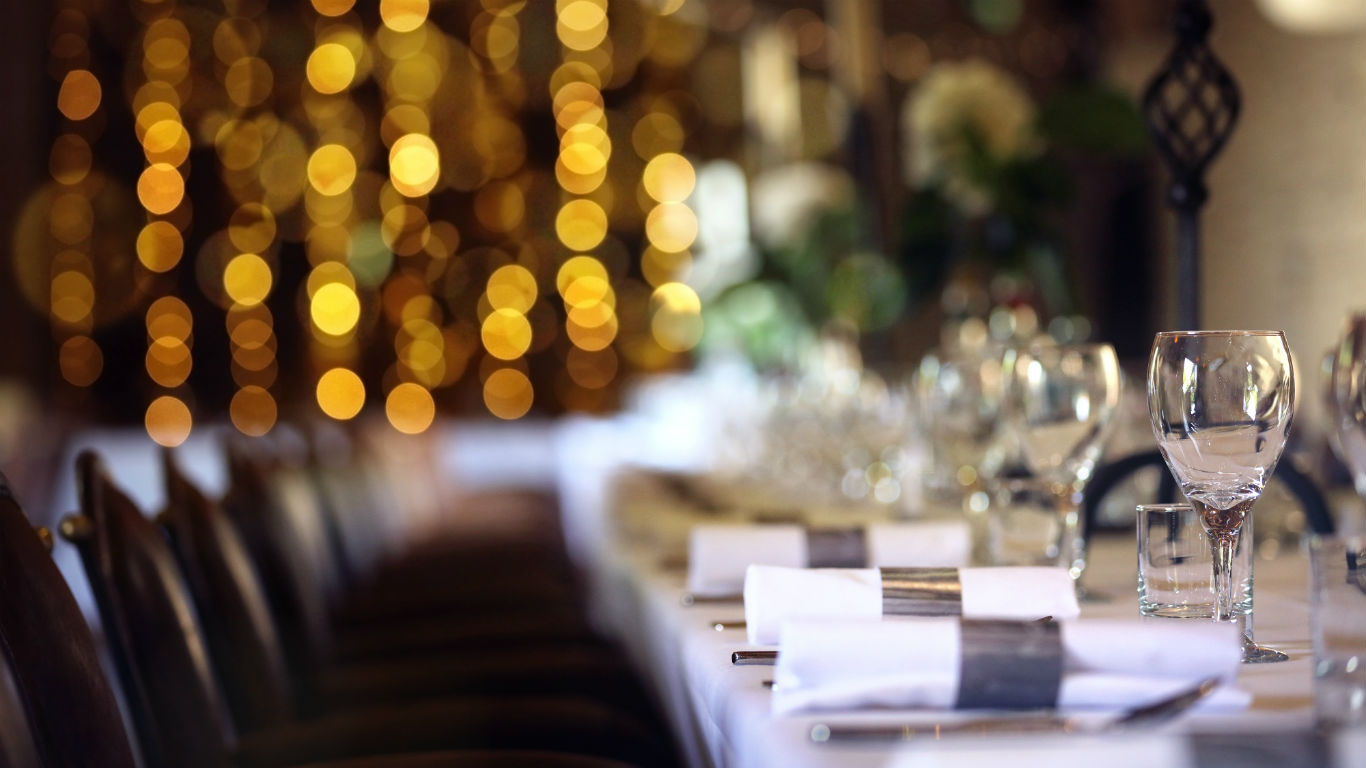
Published:

While the world struggles to contain the spread of COVID-19, there seem to be few areas of life that aren’t being dramatically — and at times devastatingly — impacted. One area that is being particularly hard hit is the restaurant industry. Chinese restaurants have been especially hard hit, with business down some 70% in New York City’s Chinatown alone — but they’re hardly the only ones.
Whether small independents or massive international chains, virtually every enterprise that serves food to the public is being forced in one way or another to confront the crisis engendered by the novel coronavirus. Here’s a look at the worst outbreaks of all time.
Many restaurants are simply adopting common-sense measures, as recommended in guidelines issued by such authorities as state and local health departments, the Centers for Disease Control and Prevention, the World Health Organization, and the National Restaurant Association — which has published restaurant-specific information on the coronavirus. Others have closed down, either voluntarily or responding to government mandates. Such closures might be just the beginning — one of the many ways in which the coronavirus will harm the GDP and businesses in 2020.
Drawing on news reports, restaurant websites, and email announcements, 24/7 Tempo has assembled examples of how the advent of COVID-19 has affected restaurants and restaurant groups around the country. As of Monday morning, the governors of Connecticut, Illinois, Indiana, Kentucky, Massachusetts, Michigan, New Jersey, New York, Onio, Rhode Island, and Washington have issued a ban on in-restaurant dining across their states, permitting only takeout and delivery service. California is allowing restaurants to remain open, but requires that they reduce their seating by 50% to enable better social distancing.
The situation is extremely fluid, and more closings, both individual and city- or state-wide, are to be expected. The list below is far from complete even as it stands, but focuses on particularly well-known establishments and restaurant groups and on places that may be lesser-known but are taking unusual measures.
Click here to see what you need to know about the coronavirus and America’s restaurants.
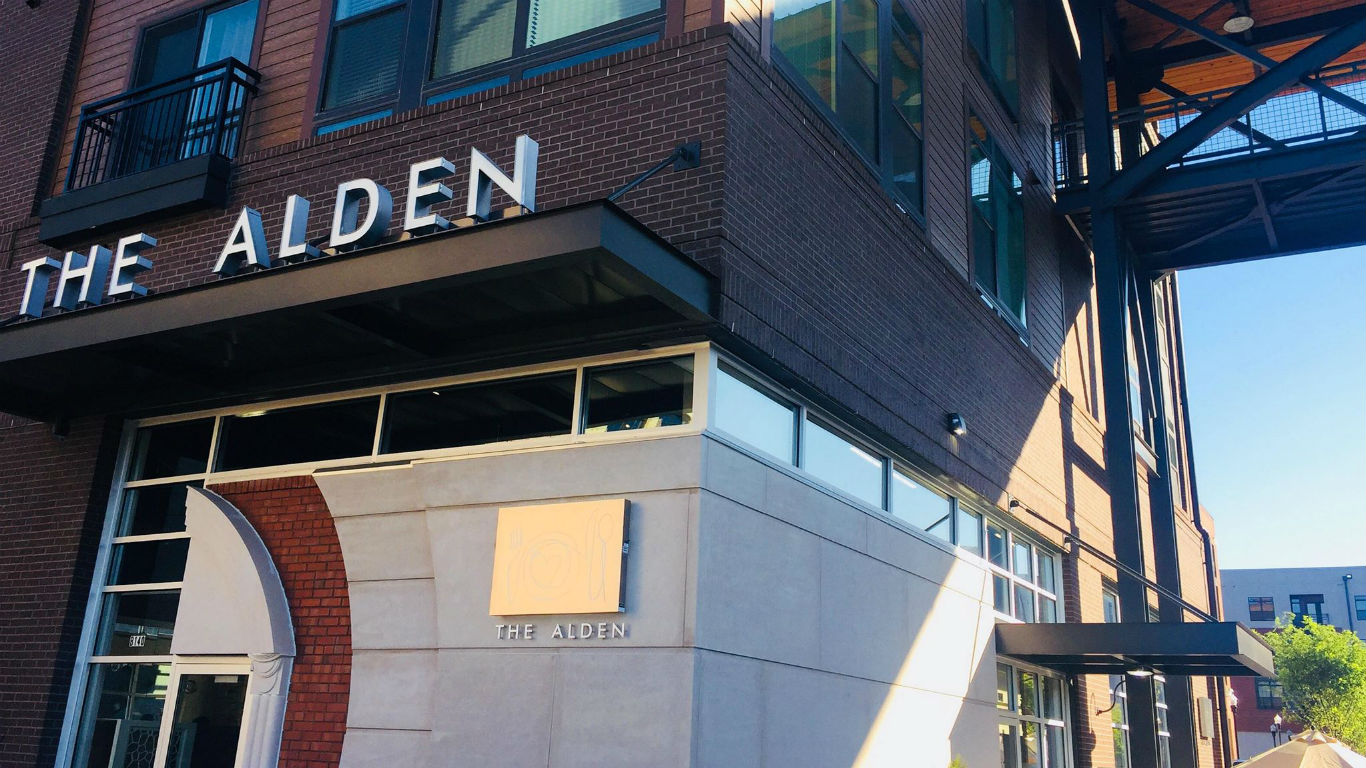
The Alden
> Location: Chamblee, Georgia
This restaurant in suburban Atlanta has contracted a global infectious disease expert to recommend best practices for minimizing COVID-19 risk. In addition to the frequent disinfecting of surfaces and the use of a sanitizing air spray, The Alden is giving guests single-use menus that are disposed of after they order.
[in-text-ad]
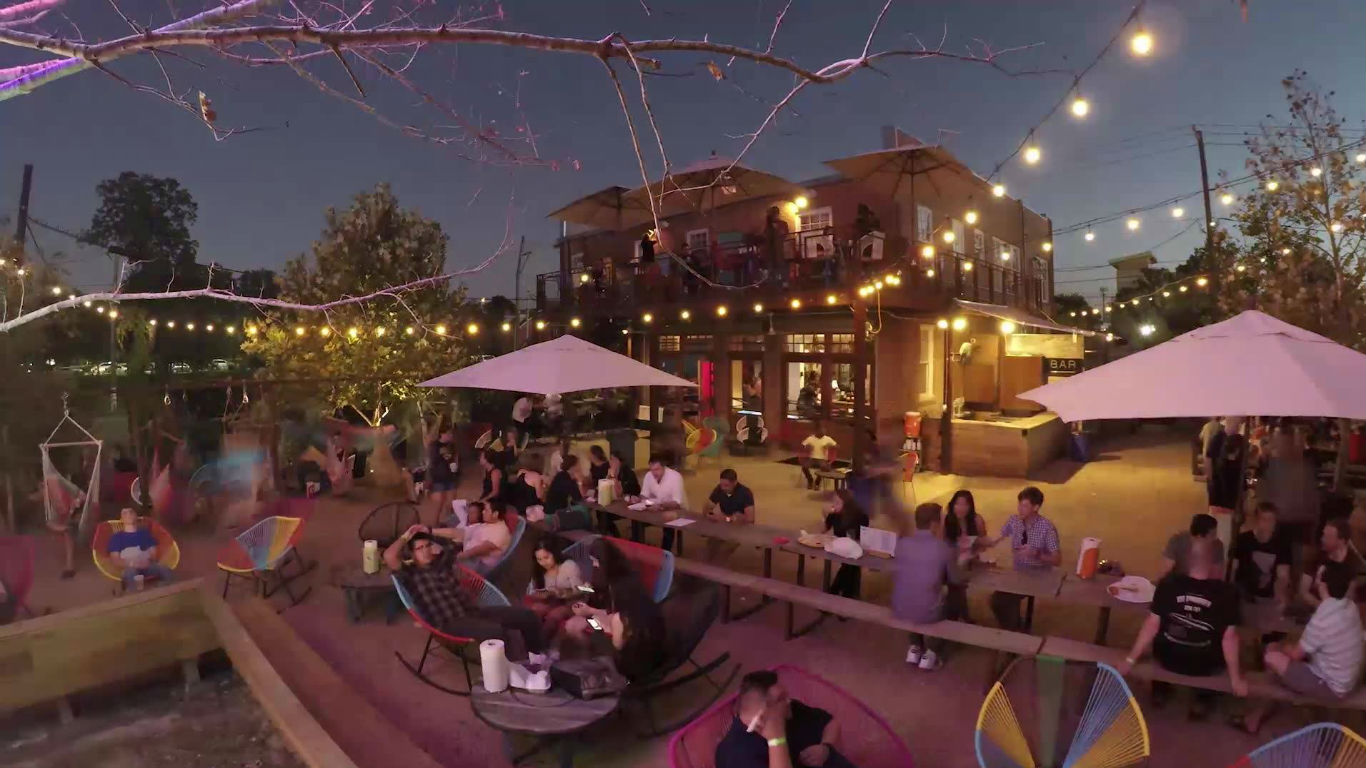
Axelrad Beer Garden
> Location: Houston
This Montrose neighborhood beer bar remains open as usual, but with an altruistic twist. Because restaurants in Houston’s Chinatown, like those throughout the country, have suffered steep declines in business since the advent of the coronavirus, Axelrad will give a free can of beer to anyone who turns up with a receipt showing that they’ve dined at any Chinatown eatery.
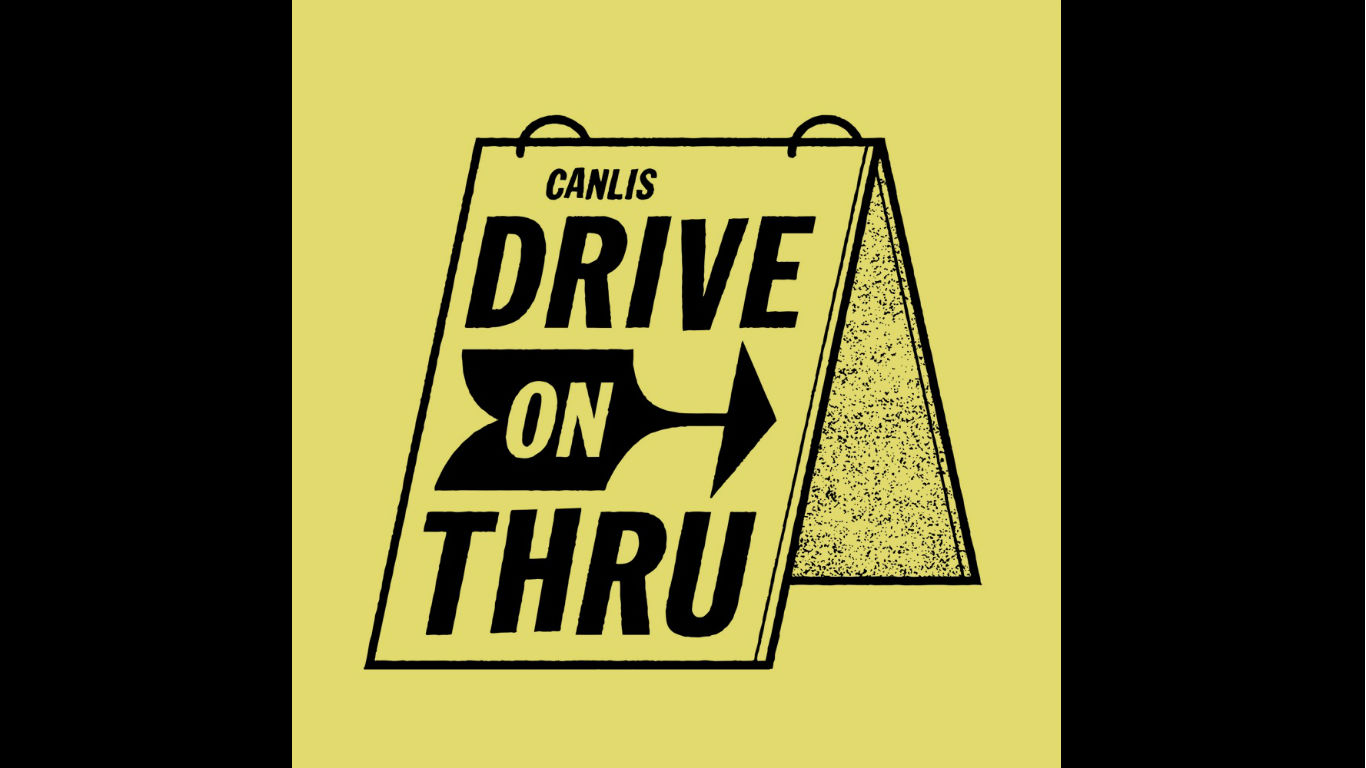
Canlis
> Location: Seattle
Perhaps anticipating today’s statewide ban on in-restaurant dining, this emblematic Pacific Northwestern classic suspended its regular operation late last week (“Fine dining is not what Seattle needs right now,” says a statement on its website) and instead has created three new options for patrons — options not normally not associated with high-end restaurants. Beginning Mar. 16, the first option, called Drive On Thru, will serve burgers, a veggie melt, the famed Canlis salad, and ice cream sandwiches every weekday. Effective Mar. 17, the second option, The Bagel Shed, will open weekday mornings with a menu of bagels, breakfast sandwiches, and coffee only for takeout. And effective Mar. 18, Family Meal, Delivered will offer a daily changing dinner complete with a bottle of wine for home delivery, weeknights only.
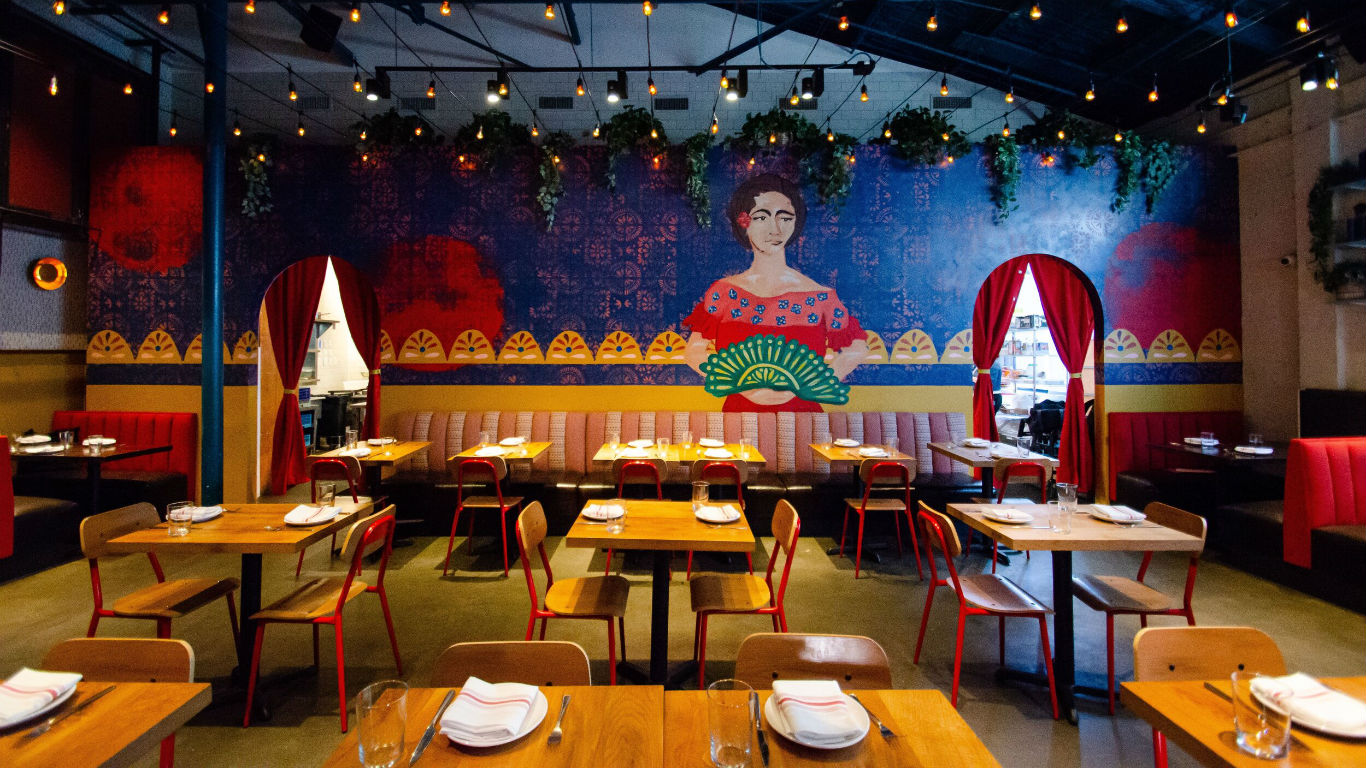
Castellucci Hospitality Group
> Location: Atlanta
The group’s restaurants, including Iberian Pig, Cooks and Soldiers, and Bar Mercado, have temporarily gone cashless (to avoid transmission of the virus on currency), have reduced seating to increase distance between diners, and have provided hand-washing stations outside the restrooms. The group is also offering sick employees paid leave.
[in-text-ad-2]
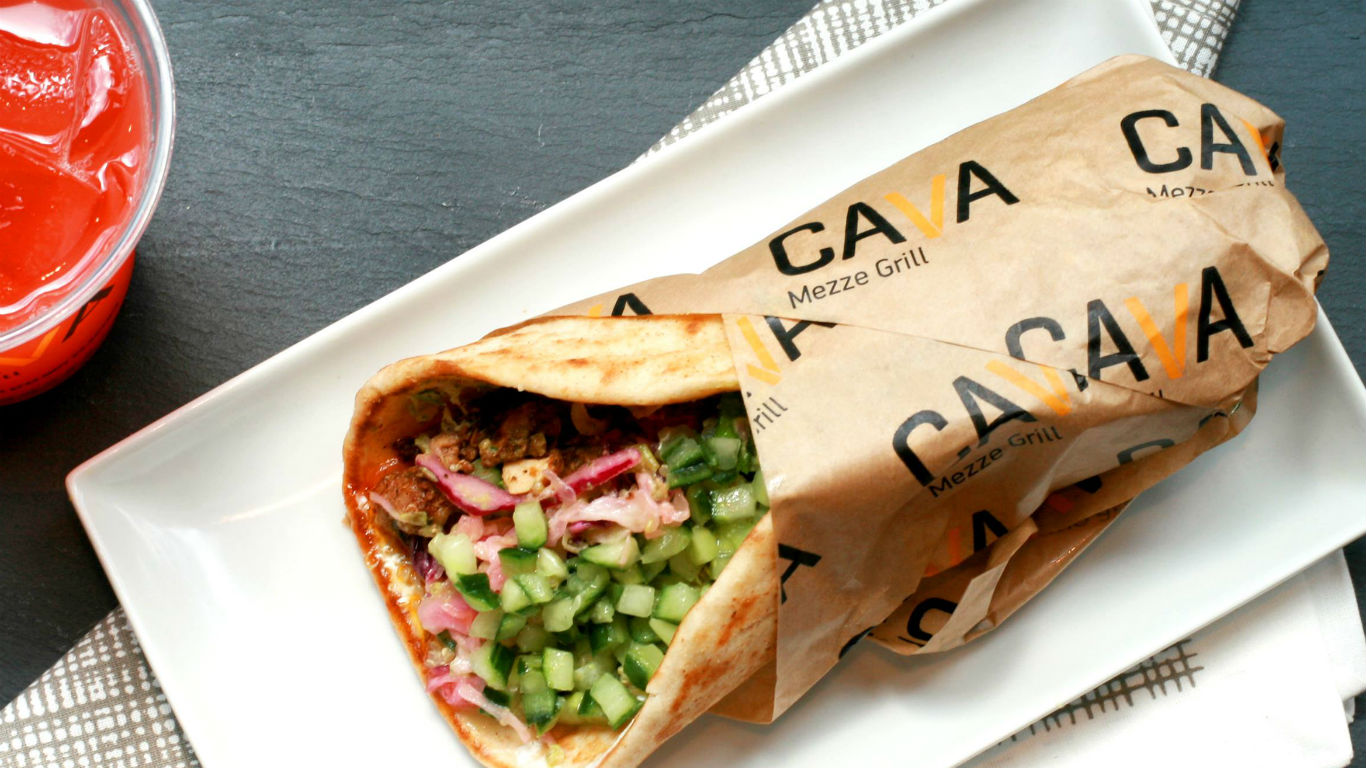
Cava
> Location: 12 states and Washington D.C.
At units of this casual Mediterranean-themed chain, employee handwashing protocols are being strictly enforced, and the frequency of cleaning and disinfecting the restaurants has been increased. The chain also reminds customers that it has a paid sick leave policy and that “managers are required to send home any team members showing signs of flu-like symptoms.”
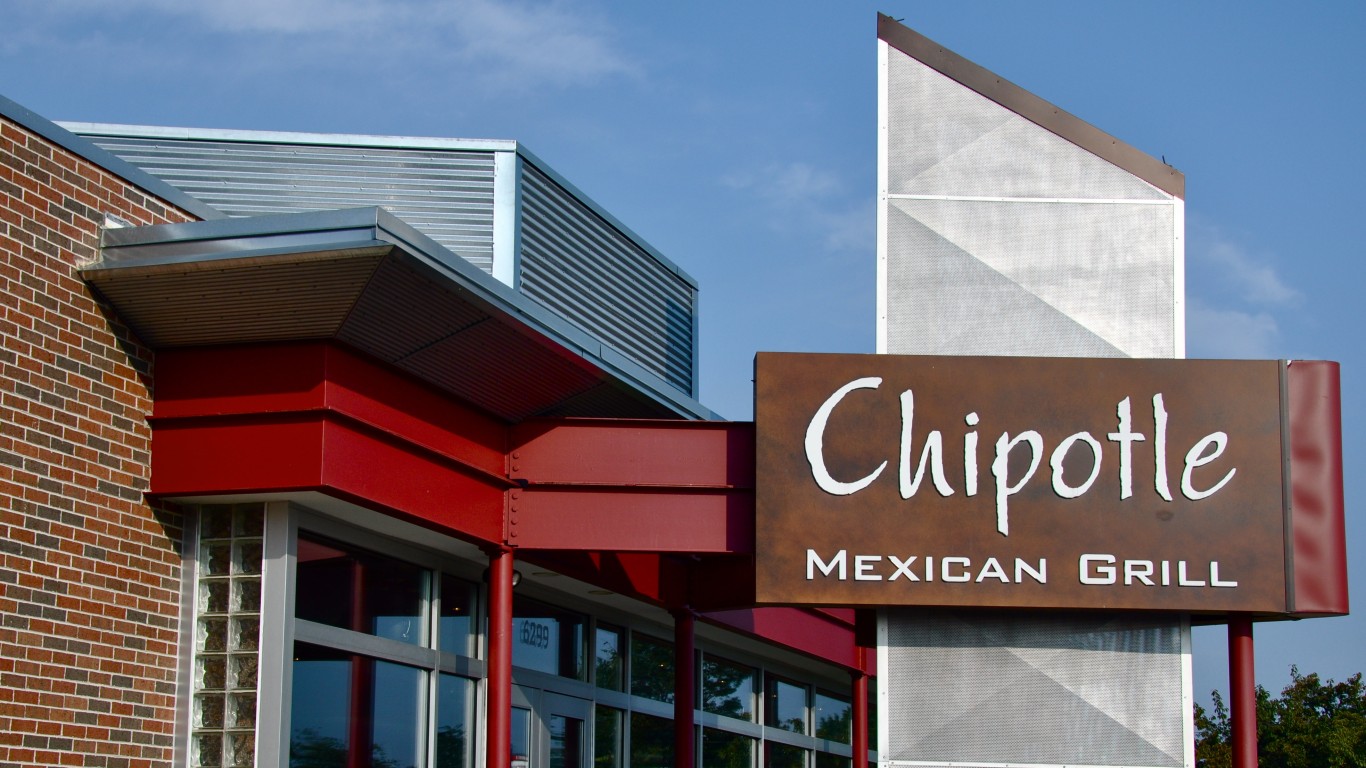
Chipotle Mexican Grill
> Location: Nationwide
Perhaps especially sensitive to issues of food contamination, given its history of bacterial outbreaks that sickened hundreds of customers in past years, Chipotle has changed its to-go packaging to prevent tampering. It has also waived delivery fees through the end of March when food is ordered through the chain’s new Delivery Kitchen digital initiative, and it allows customers who want to avoid direct contact to leave special instructions for drivers. Following criticism that it offered employees only three days of paid sick leave, the company announced late Friday “expanded emergency leave benefits for employees impacted by COVID-19.”
[in-text-ad]
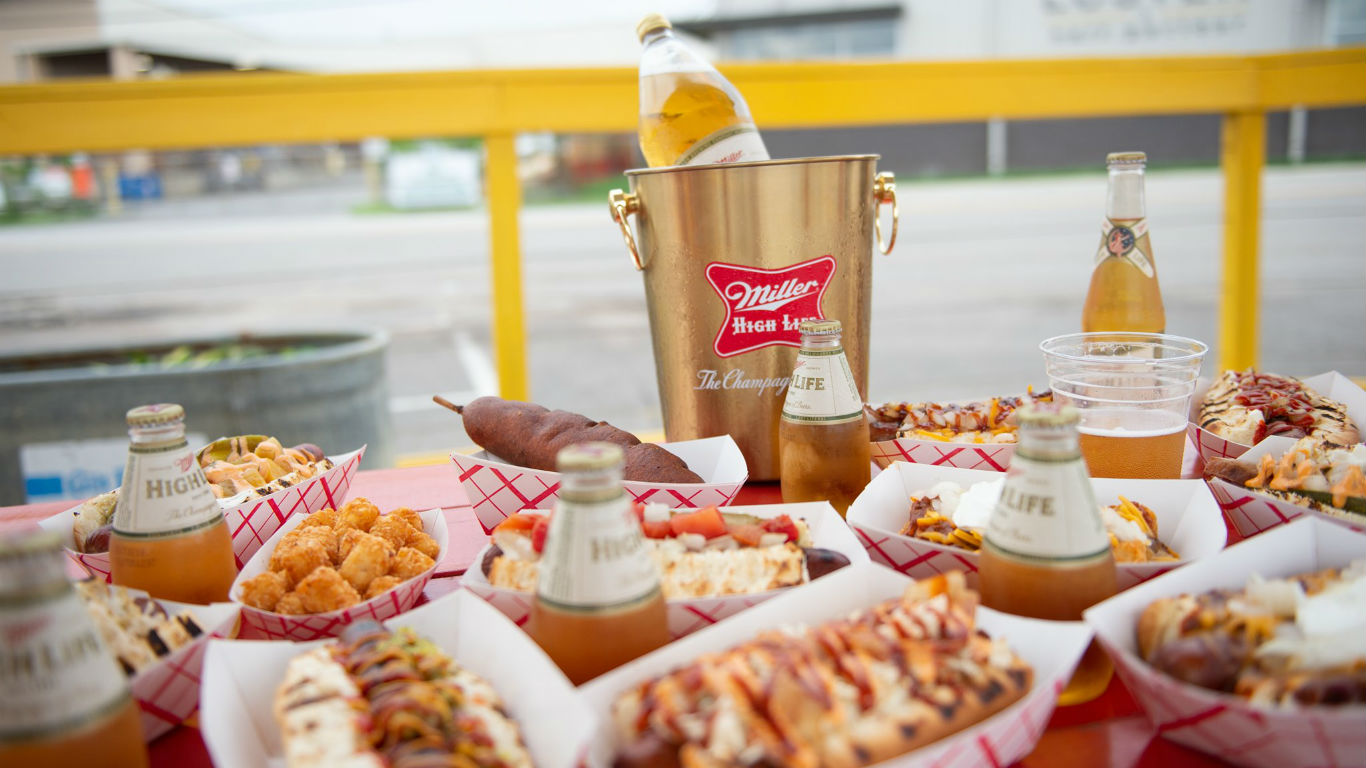
Daddy’s Dogs
> Location: Nashville
With two brick-and-mortar locations and two late-night food carts, this gourmet hot dog operation is offering free meals to anyone in the music business who is now out of work due to concert and club cancellations — which have been frequent in the face of COVID-19.
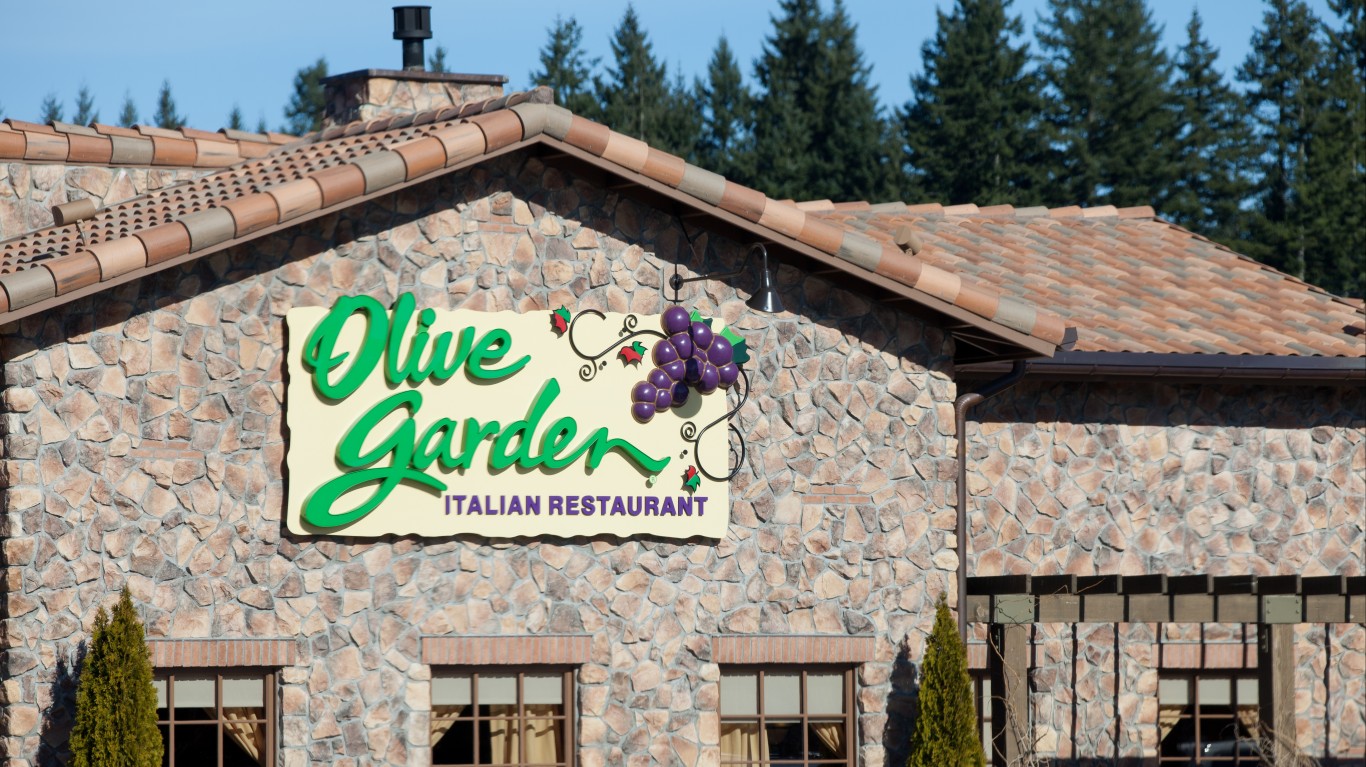
Darden Restaurants
> Location: Nationwide
This Orlando-based company, whose brands include Olive Garden, Longhorn Steakhouse, and The Capital Grille, has announced that its more than 180,000 hourly workers at various chains will be able to accrue sick leave paid according to their 13-week pay average, at the rate of one hour for every 30 hours worked. The policy was already in the works before the coronavirus crisis but was instituted more quickly than had been planned in response to the pandemic. It’s unclear whether employees who are quarantined but aren’t actually sick will qualify. In any event, to total up enough paid hours to cover a 14-day quarantine period could take more than a year according to the one-per-30 formula.
Dunkin’
> Location: Nationwide
This coffee, doughnut, and sandwich chain formerly known as Dunkin’ Donuts has created an internal global task force that meets daily to address the crisis. The chain has also temporarily halted food sampling and reusable mug programs and curtailed non-essential employee meetings and travel.
[in-text-ad-2]
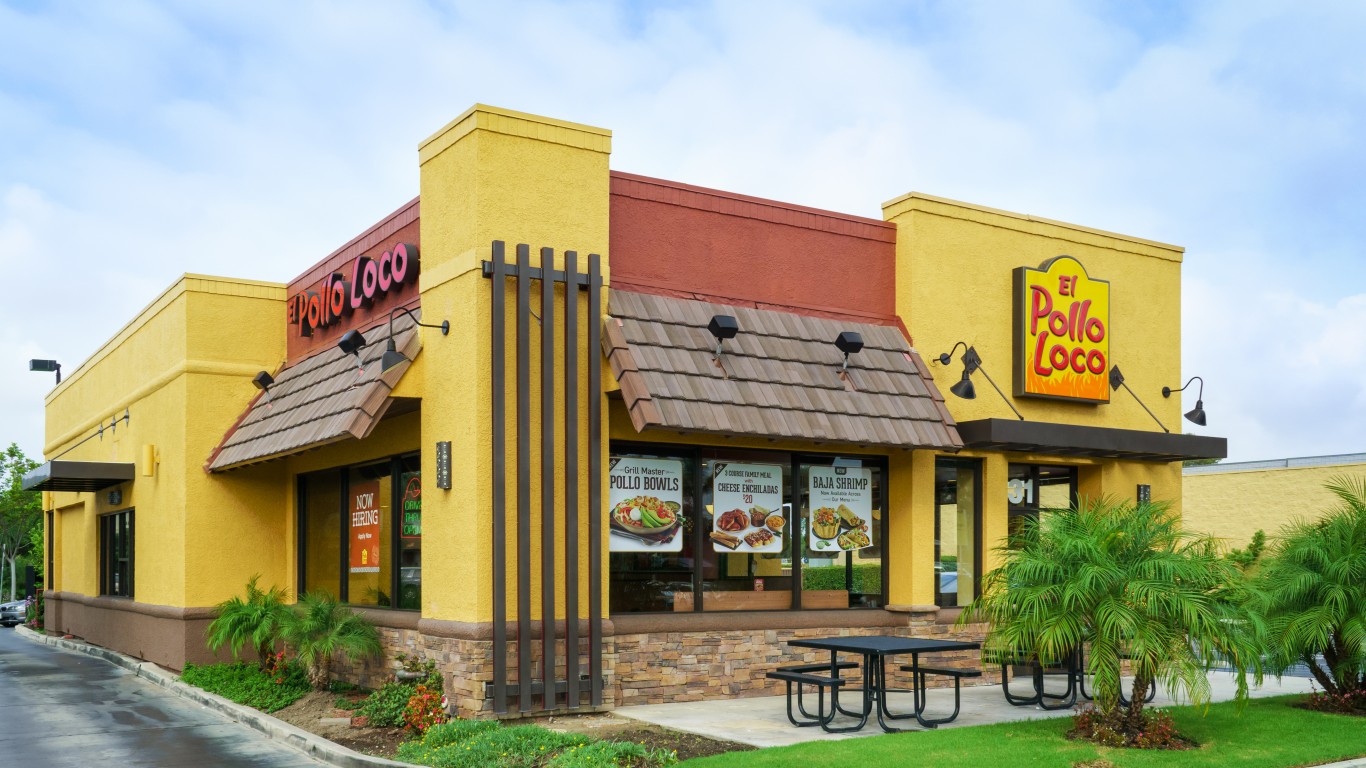
El Pollo Loco
> Location: Arizona, California, Louisiana, Nevada, Texas, and Utah
This Mexican-accented fast-food chicken chain has temporarily closed its self-service salsa bar. Patrons may request salsas at the counter, from glove-wearing cashiers. (California restaurants are now operating by law on a takeout or delivery basis only.)
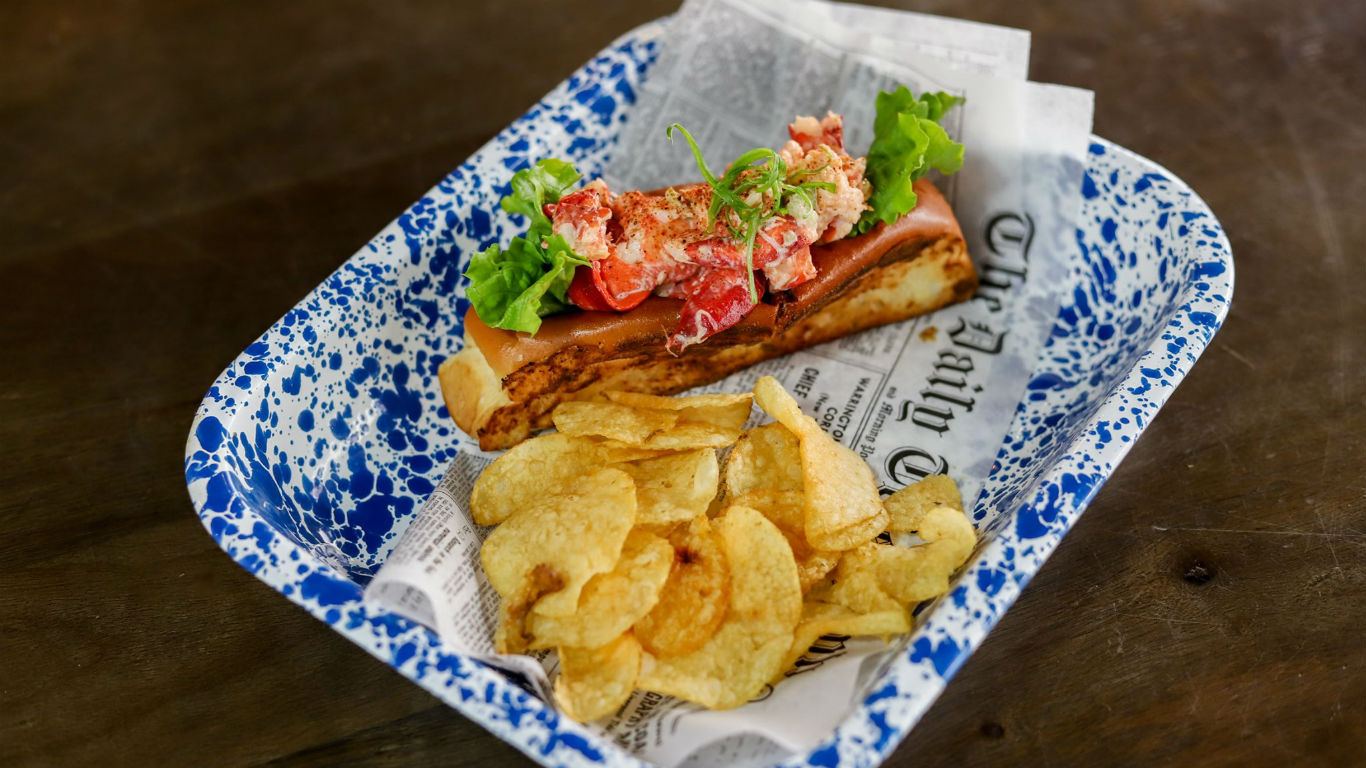
Garbo’s Lobster
> Location: Austin, Texas
This seafood place in the Texas capital had already offered employees seven paid sick days per year. The restaurant has upped the number of sick days to 14 days during the crisis, reflecting the number of days health officials say those who have potentially been exposed should self-quarantine.
[in-text-ad]
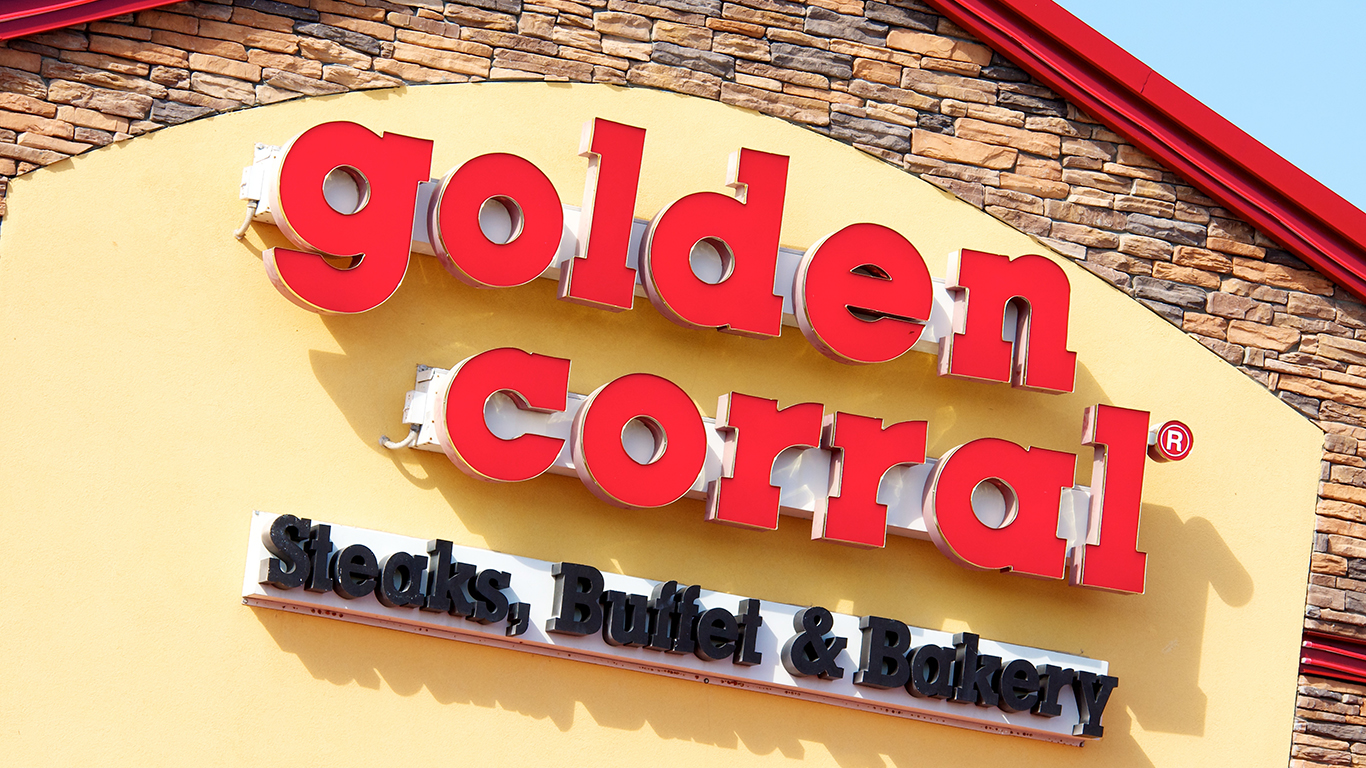
Golden Corral
> Location: Nationwide
This popular buffet chain sanitizes all key guest “touchpoints,” changes all serving utensils every 30 minutes, and requires workers to wash their hands every 20 minutes or between tasks. Employees at company-owned units will receive paid leave for their scheduled hours during a 14-day quarantine resulting from a confirmed diagnosis.
Katsuya restaurants
> Location: Los Angeles area
With their dining rooms now closed by order of the city government, all four Katsuya restaurants around the city are offering a 20% discount for in-store pickup orders, as well as free delivery through GrubHub.
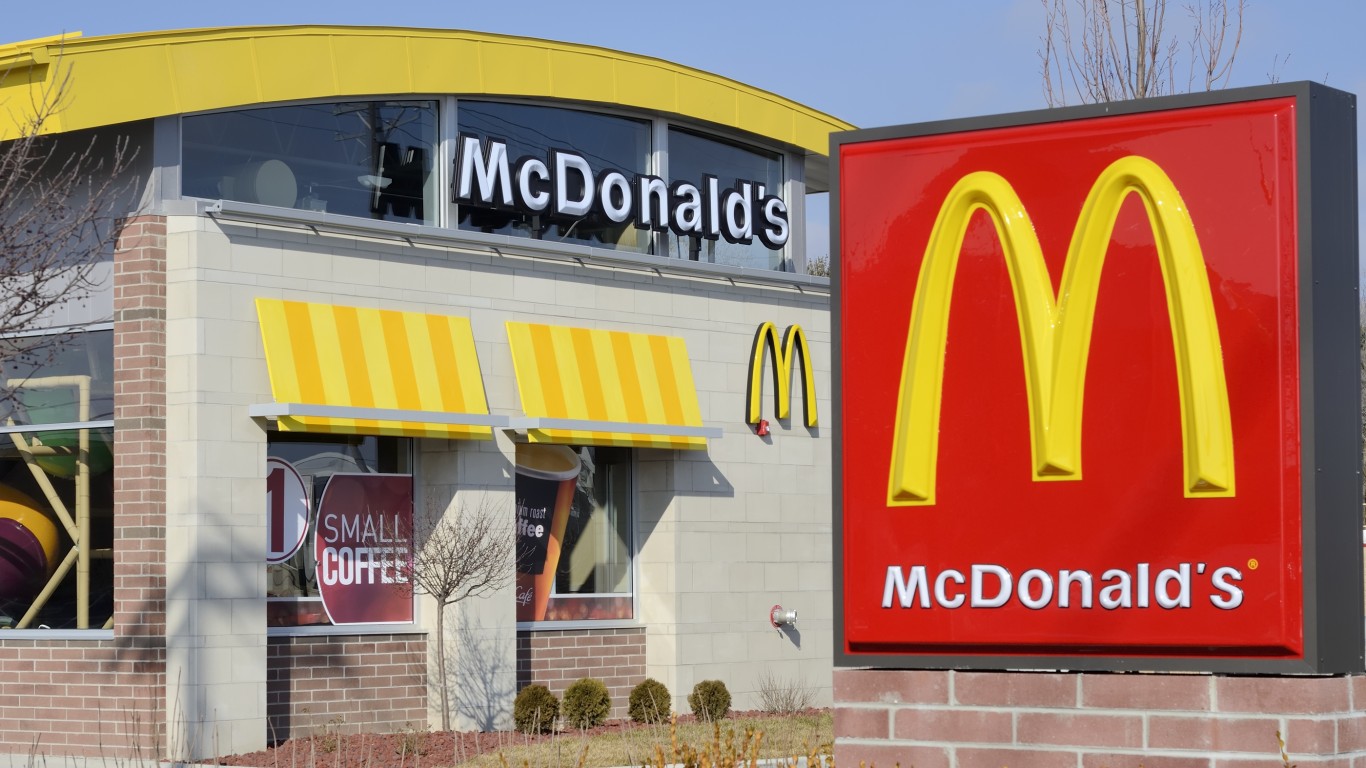
McDonald’s
> Location: Nationwide
The country’s (and world’s) leading burger chain has advised operators to frequently sanitize any “touchpoints,” such as door handles and countertops and to provide hand sanitizer dispensers for guests. It has also announced that it would pay any workers at company-owned units who were requested to self-quarantine for 14 days. It is unclear whether franchise units would pursue the same policy, but many have sick-leave guidelines already in place.
[in-text-ad-2]
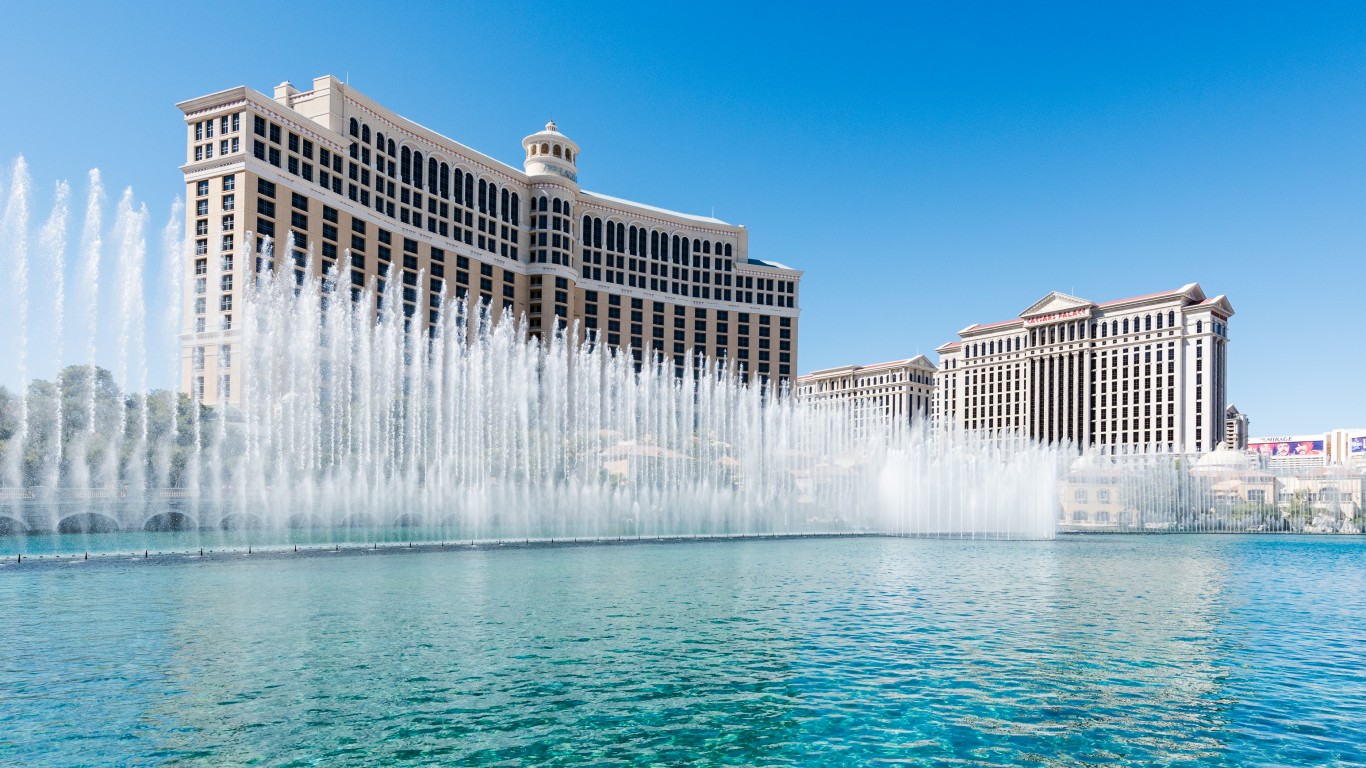
MGM Resorts
> Location: Las Vegas
On Sunday, buffet restaurants at five MGM properties in Las Vegas — ARIA, Bellagio, The Mirage, Luxor, Excalibur, and MGM Grand — closed down. The company has later announced that approximately 150 of its food and beverage outlets nationwide would begin closing today on a rolling basis. Then, Sunday night, it announced all its Las Vegas properties — meaning entire hotels and casinos — would close completely as of Mar. 17.
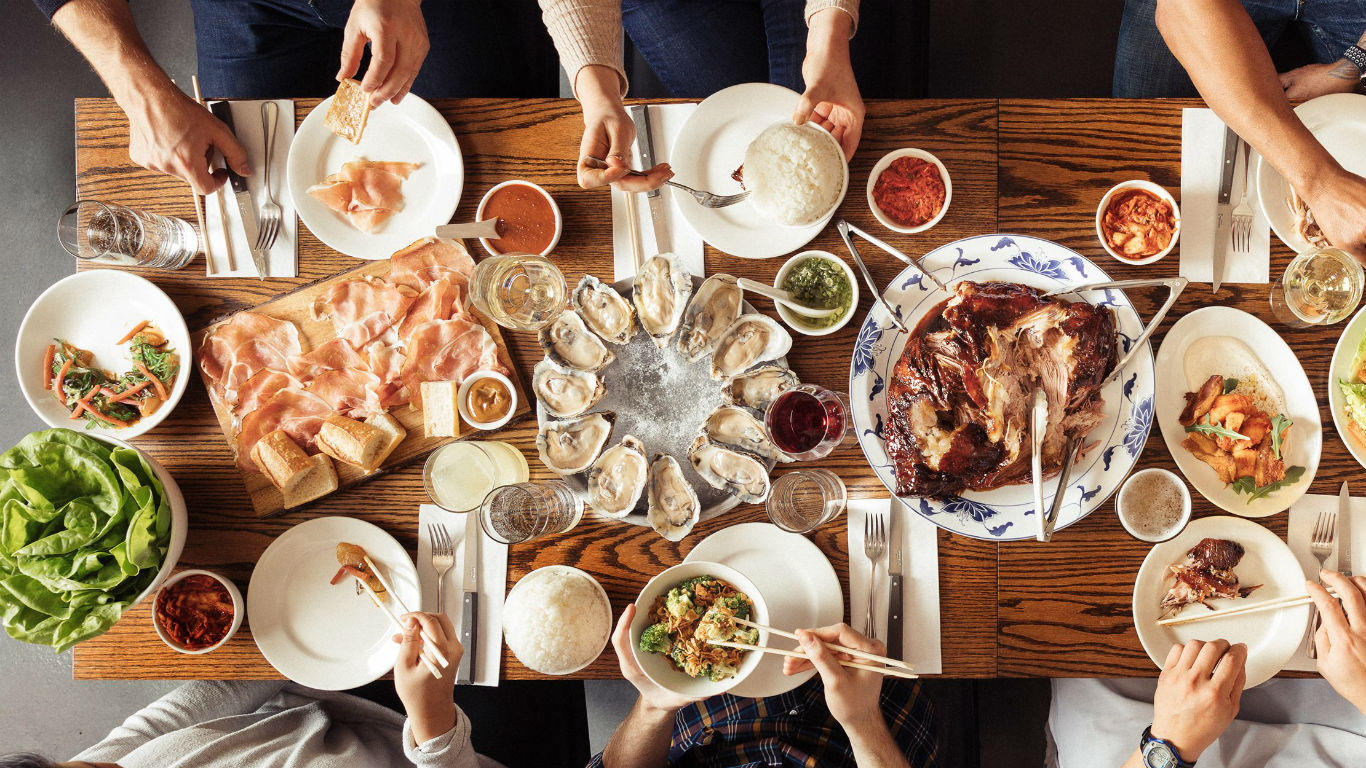
Momofuku Restaurant Group
> Location: New York City, Washington D.C., Boston, Los Angeles, Las Vegas, Toronto, and Sydney
Effective last Saturday, influential chef-restaurateur David Chang closed all of his restaurants in New York, Washington D.C., and Los Angeles until further notice. All salaried employees will take an unspecified pay cut. Hourly employees will be paid through Mar. 20, with those who have worked for the company for more than five years being covered through April 3. All hourly employees who currently have company health insurance will retain it through the end of April. Though the Boston outlet of Chang’s fast-food chicken chain Fuku wasn’t affected, it is now subject to the Massachusetts state order restricting all restaurants to take-out or delivery only.
[in-text-ad]
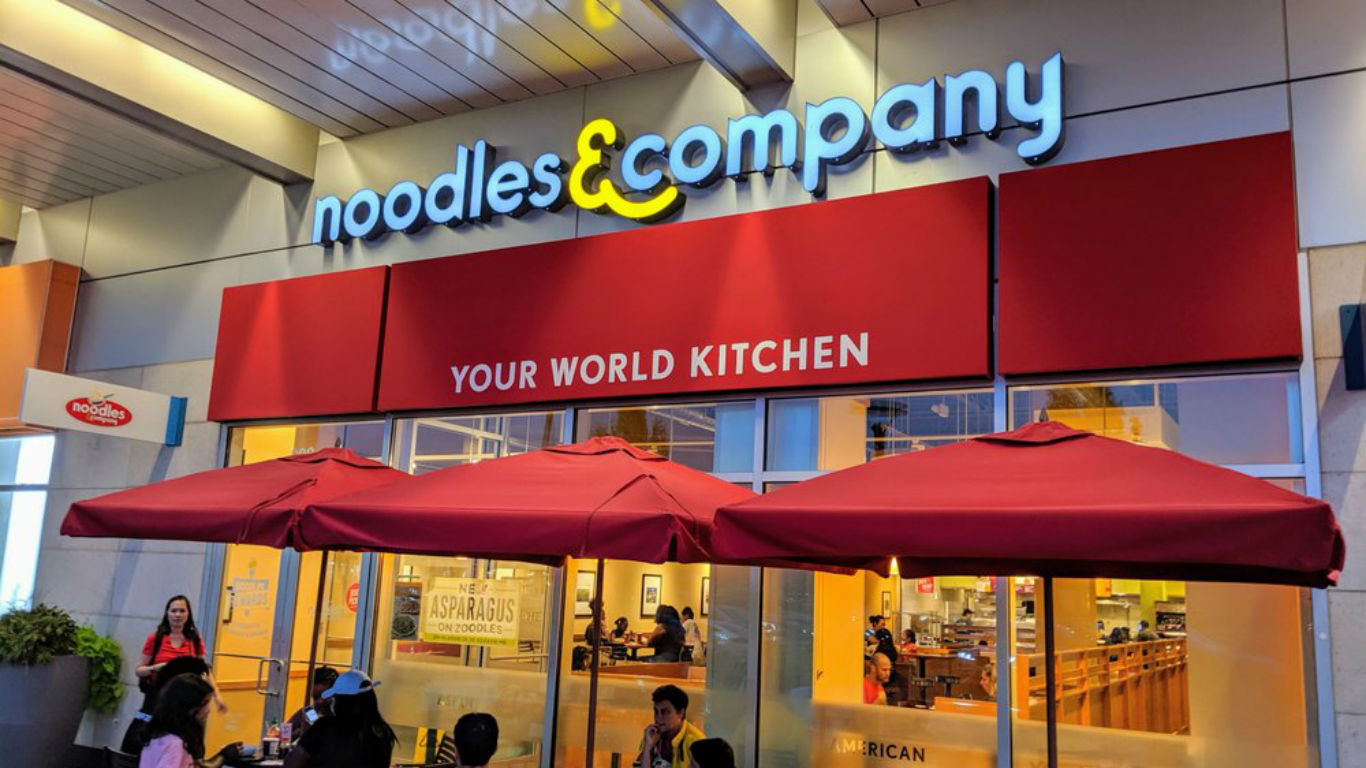
Noodles & Company
> Location: Nationwide
This 460-unit pasta and Asian noodle chain, already known for its generous benefits, is developing a long-term paid sick leave program for employees. In the meantime, an emergency initiative will pay workers who test positive for COVID-19 or are quarantined “the average of their weekly pay based on total hours worked over the past eight weeks for a maximum of two weeks.” Managers also have the option to send home those who show “observable symptoms.”
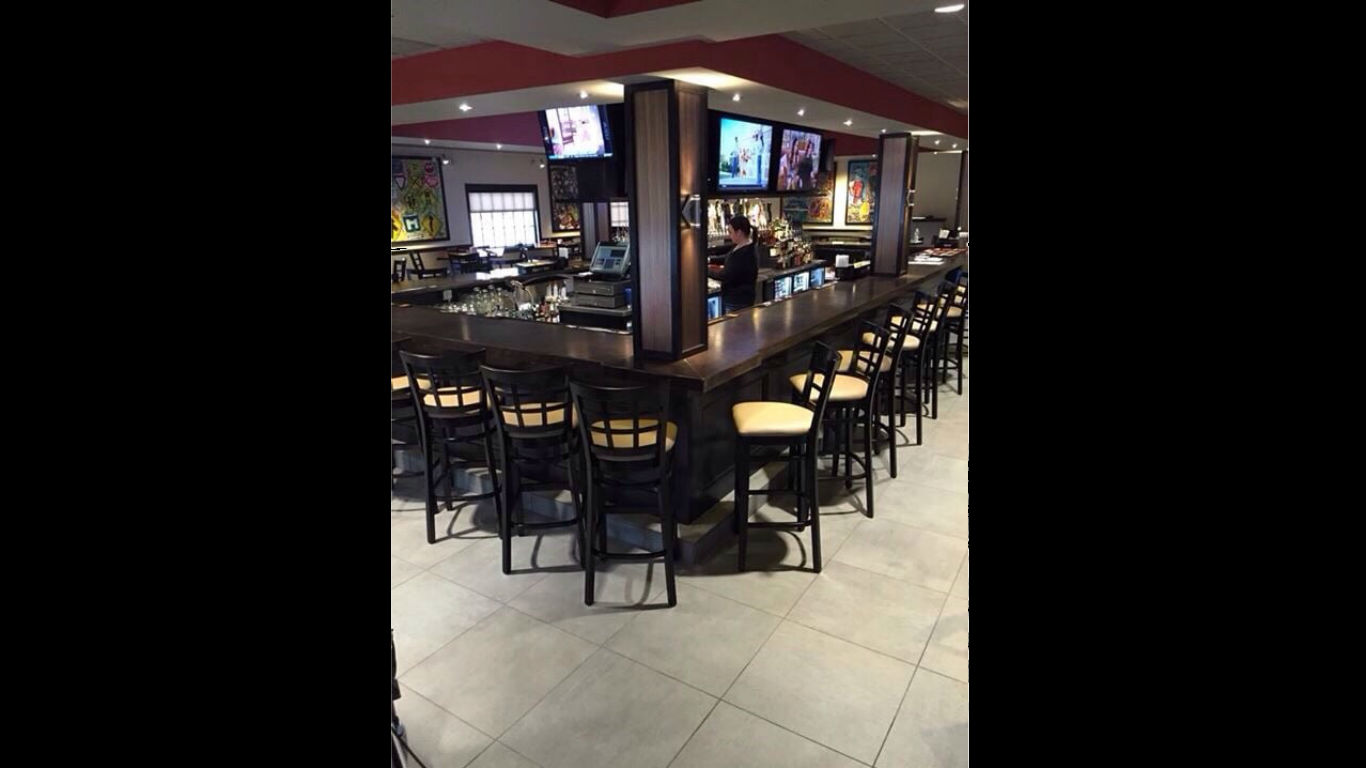
Pittsford Pub & Grille
> Location: Pittsford, New York
Like all other restaurants in New York State, this standalone restaurant in a Rochester suburb can now serve food only for takeout and delivery. It had been of special interest to some in the restaurant community, though, as it has been testing a device called Hand Wash Coach in an effort to improve and monitor employee compliance with hand-washing protocols. Attached to an employee sink, the Coach tells users to dampen their hands for three seconds, apply soap, rub their hands together for 15 seconds, then dry their hands with paper towels. It also keeps track of how often each employee scrubs down. The system, including a camera and a monitor, costs about $1,200 per sink.
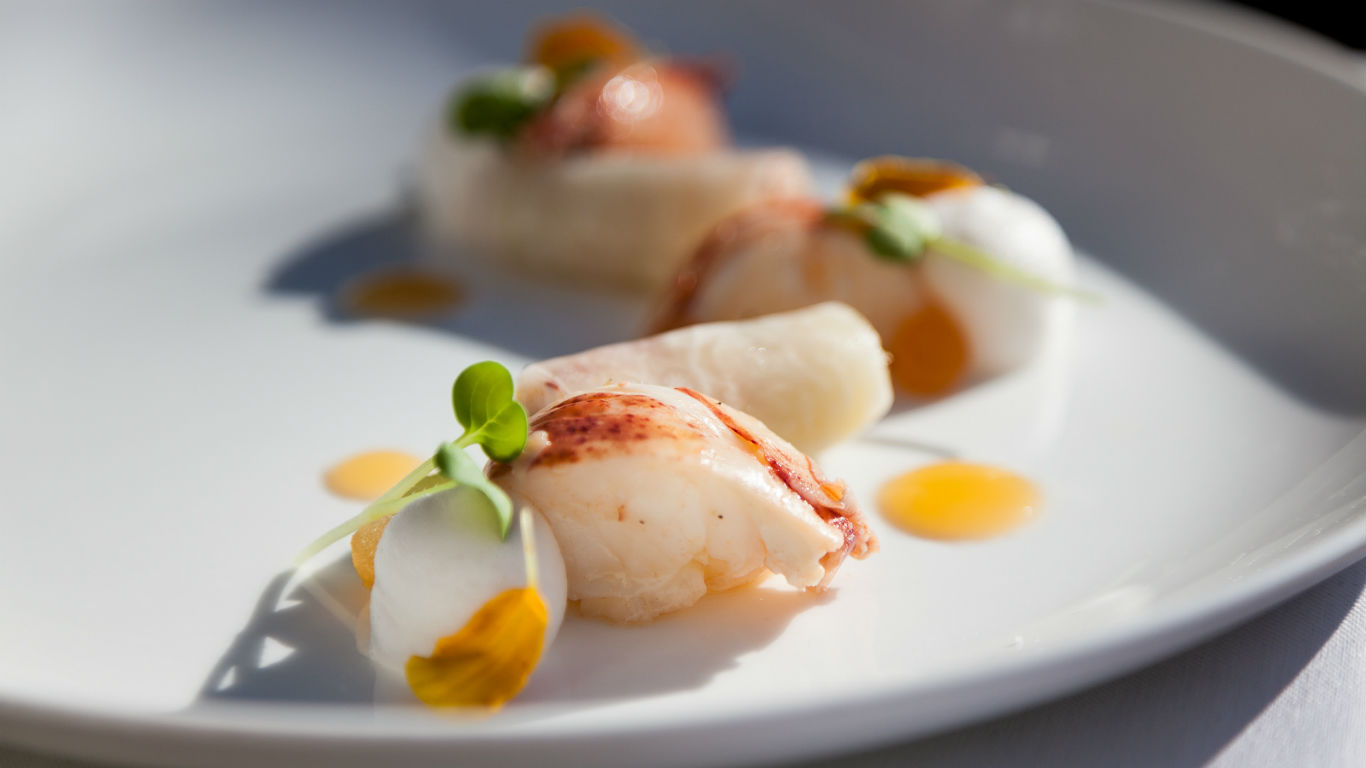
The Plumed Horse
> Location: Saratoga, California
This Michelin-starred restaurant in Northern California’s Silicon Valley has removed 21 of its 36 tables so that parties can be separated by at least six feet. Servers at the restaurant wear single-use gloves, discarding them after each customer interaction, and sick workers will be paid for up to 14 days.
[in-text-ad-2]
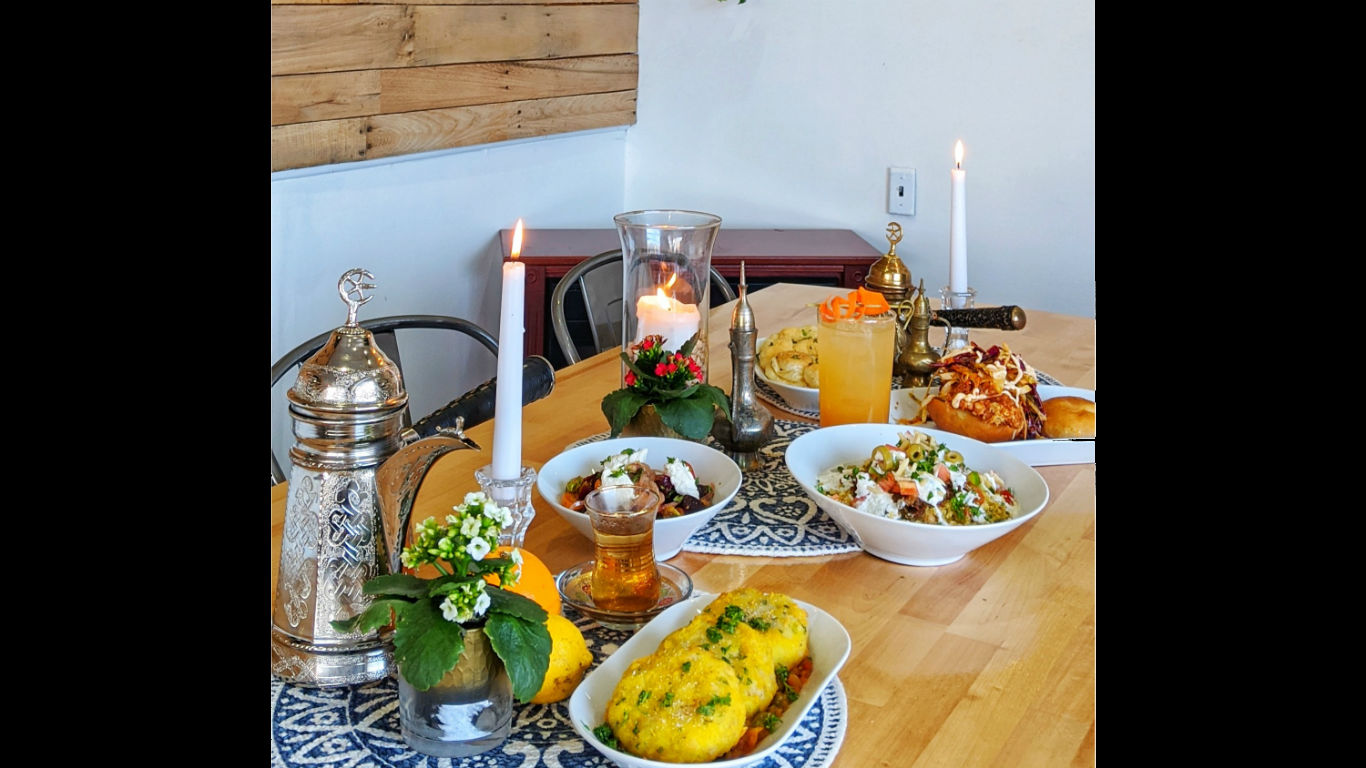
Saffron De Twah
> Location: Detroit
“After consultation with medical professionals,” this small modern-Moroccan establishment — named Detroit’s 2019 restaurant of the year by Eater — anticipated the official state ban on in-house dining across Michigan by closing its dining room and temporarily switching to take-out only.
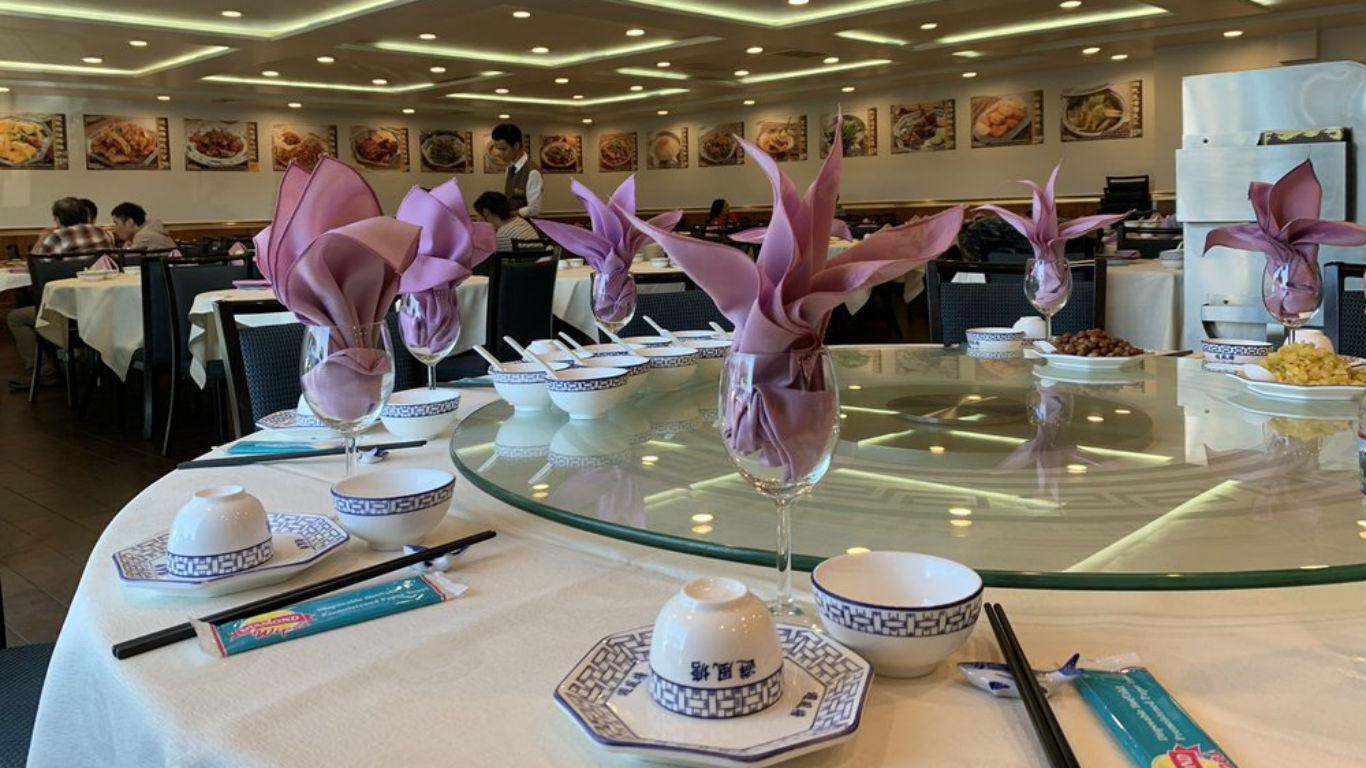
Seafood Palace
> Location: Monterey Park, California
Affected, like so many Chinese restaurants, by the business downturn resulting from the coronavirus panic, this Cantonese/Chaozhou (or Chiu Chow) establishment — a favorite of the late Los Angeles Times restaurant critic Jonathan Gold — closed permanently the week of Mar. 3.
[in-text-ad]
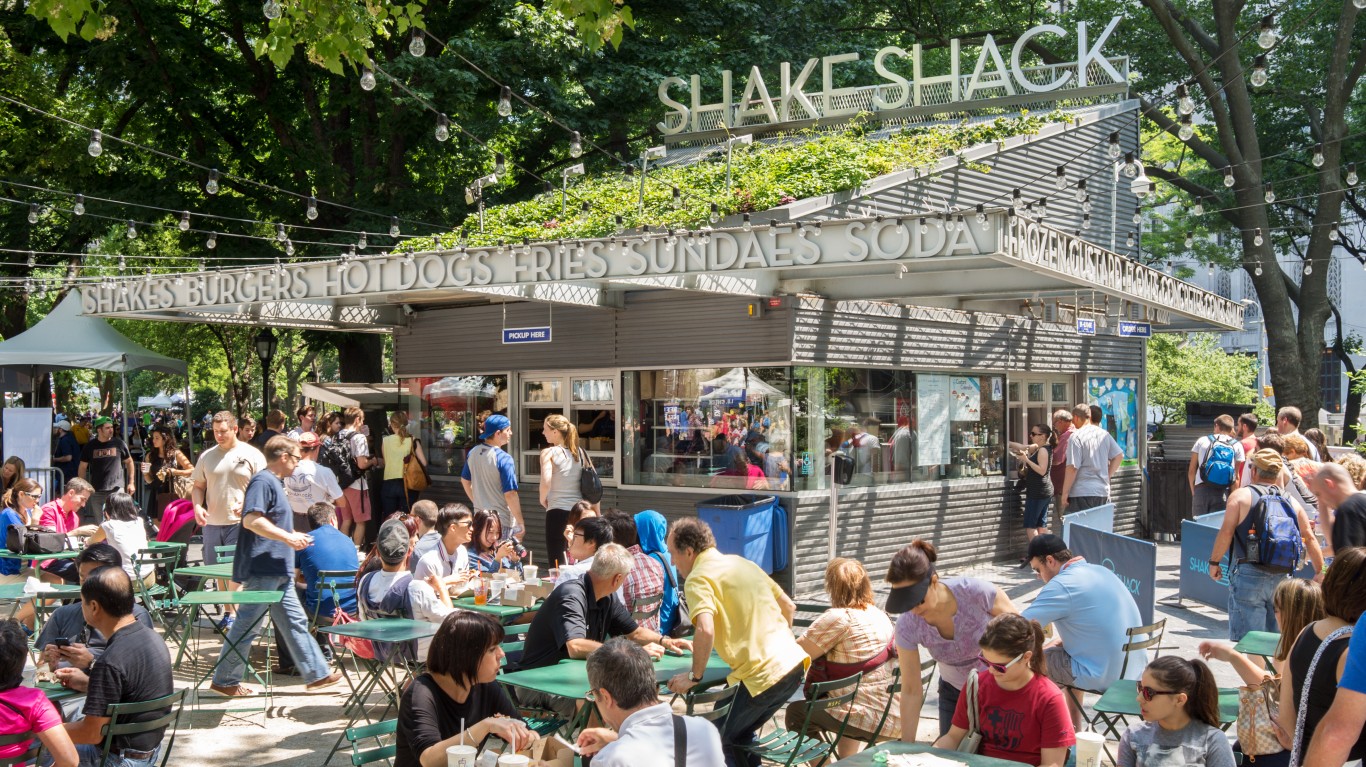
Shake Shack
> Location: Nationwide
Founded by Danny Meyer’s Union Square Hospitality Group (see below) but now a public company, Shake Shack units are not closing at this time, unlike USHG properties, except where mandated by state governments. However, they have introduced numerous measures to help stave off viral contamination. Surfaces are disinfected throughout the day; sanitizing wipes and sanitizer dispensers are available for customers as well as staff; all self-serve items, including condiments and utensils, are now handed out on request; and all to-go and delivery orders are being placed in fully sealed containers.
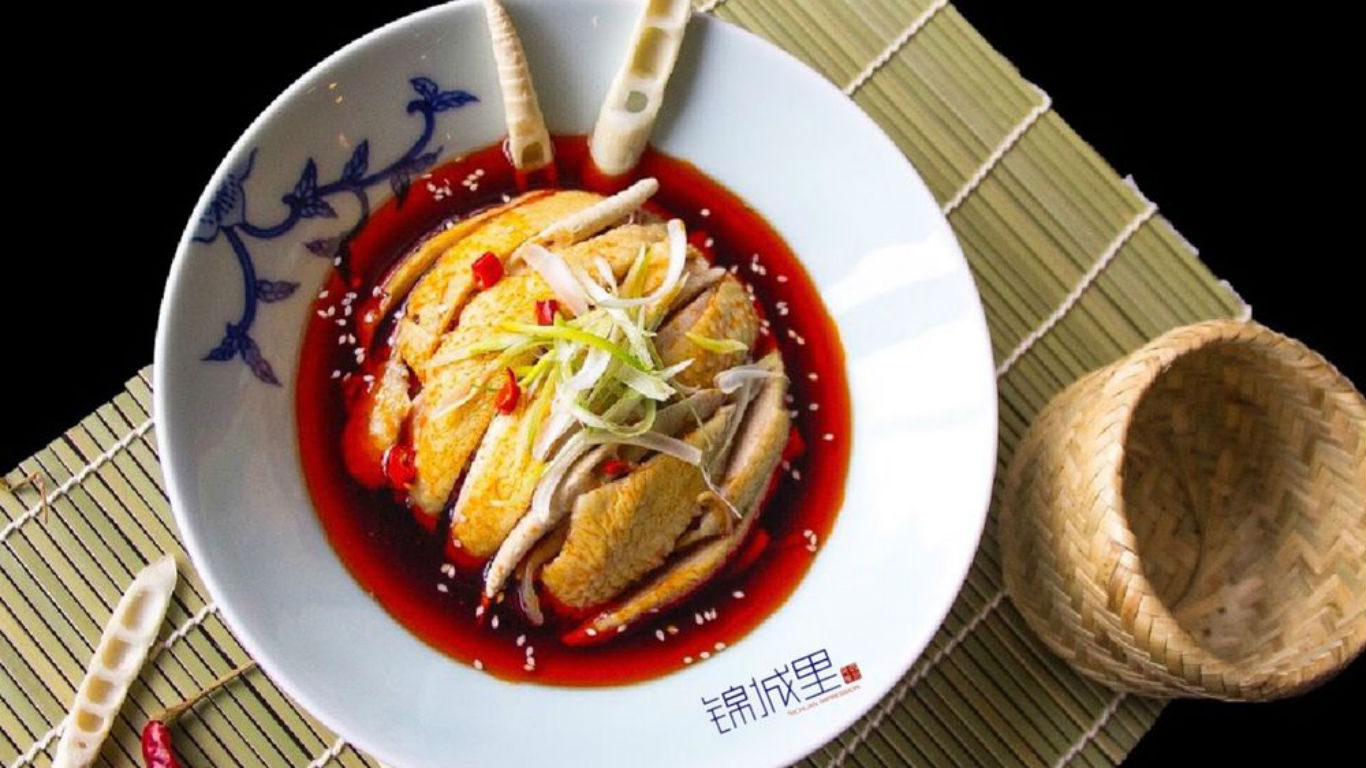
Sichuan Impression
> Location: Southern California
This small Southern California Chinese restaurant chain, with units in Tustin, Alhambra, and West Los Angeles, has begun taking the temperature of potential customers with infrared thermometers before they enter. Those who refuse to submit are encouraged to order takeout and given a 5% discount if they do. It also offers free delivery “for a limited time” to customers within five miles of its Tustin location. The West Los Angeles unit can operate with delivery and takeout only, due to a Los Angeles city ruling.
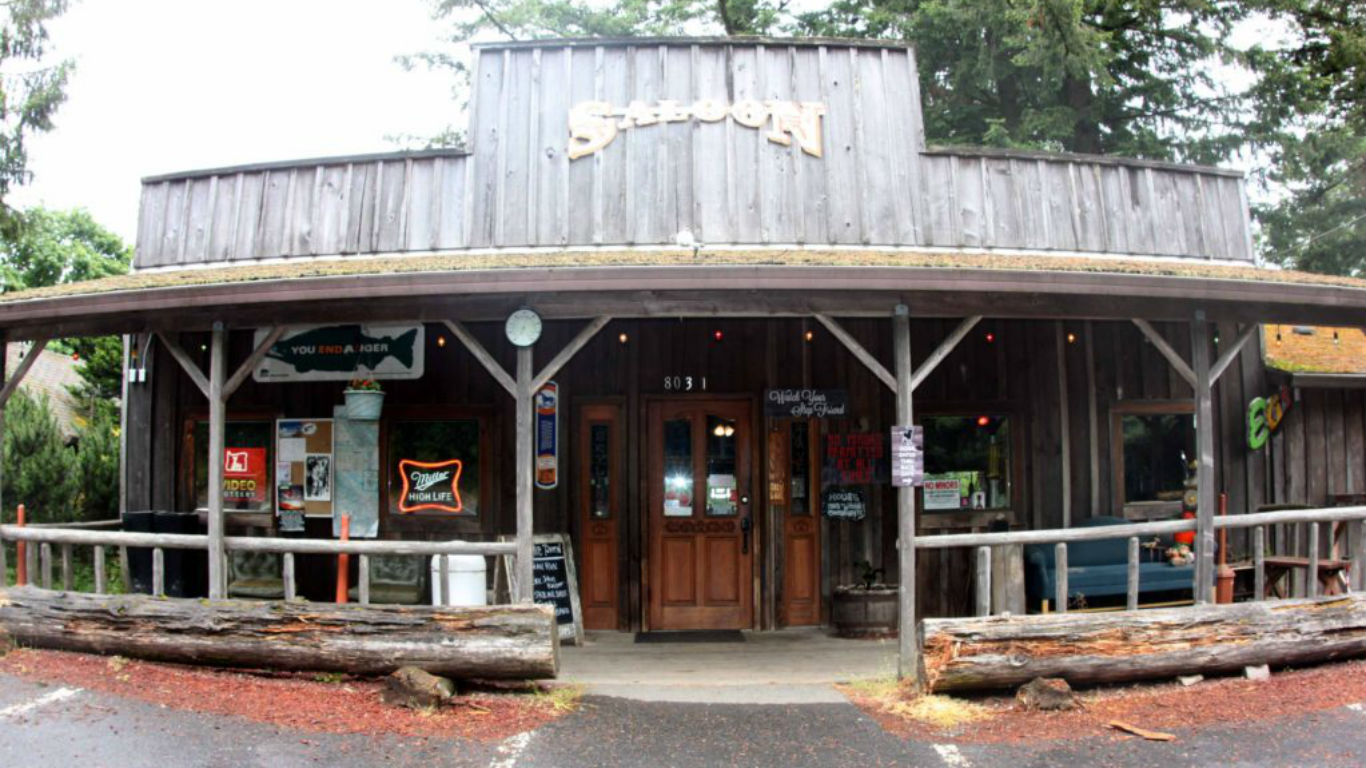
Skyline Tavern
> Location: Portland, Oregon
In a statement announcing that they are closing until further notice, the restaurant writes that it will offer alternative work opportunities to its employees while it’s shut down. In addition, “We’re distributing perishable food items to staff, friends, and family to decrease waste and taking this time to clean our space, facilities, and property.”
[in-text-ad-2]
Starbucks
> Location: Nationwide
Starbucks shuttered its Seattle Reserve store for three days after an employee there tested positive for the virus. The store was deep-cleaned, and any employee who had worked with the affected person was sent home to self-quarantine for 14 days (they are being paid for their scheduled shifts during that period).
Chainwide, Starbucks has also released guidelines revising store cleaning policies. The chain paused the use of personal coffee cups, done away with self-serve condiments like sugar and creamer, and restricted business travel by management. Starbucks is also considering limiting seating or closing in-store seating and keeping only drive-thrus open, but CEO Kevin Johnson told Nation’s Restaurant News that complete store closures would be “a last resort” and that “store disruption” would be only temporary.
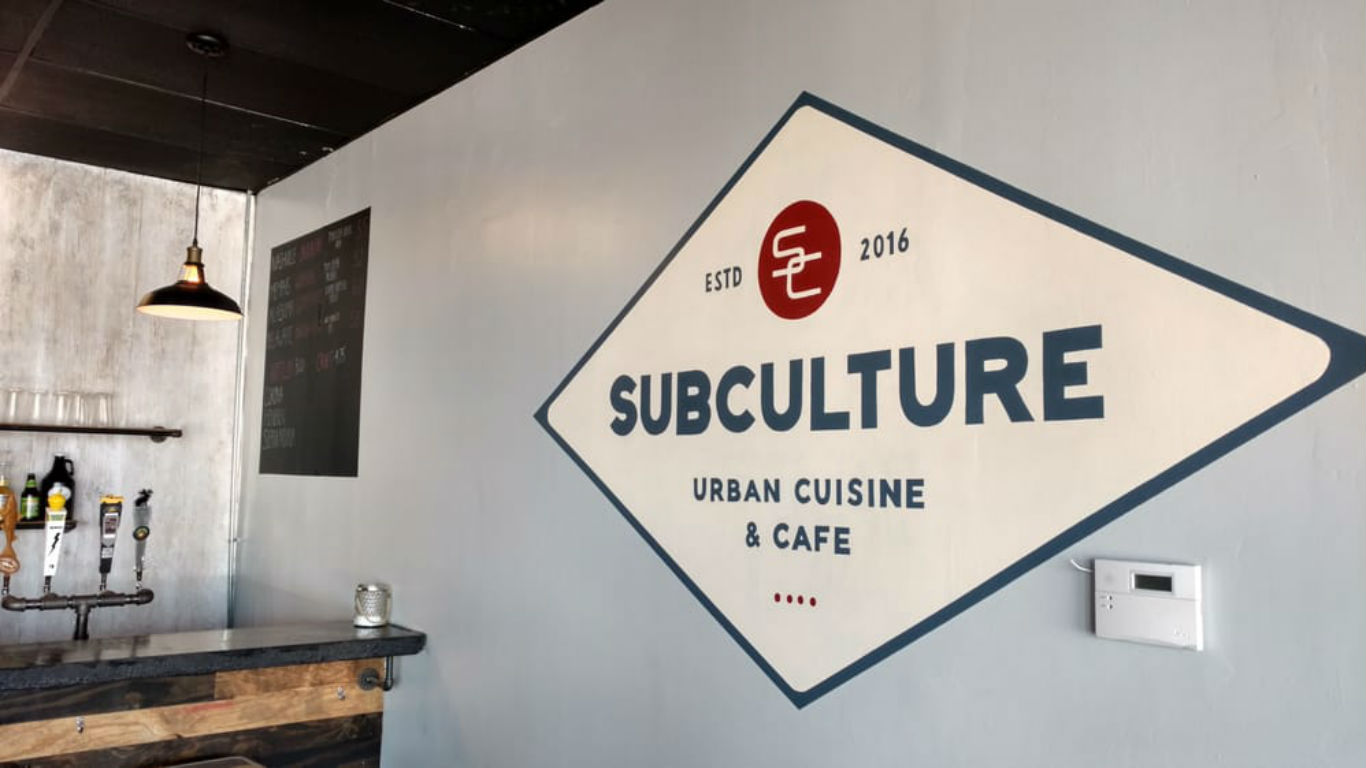
Subculture Urban Cuisine & Café
> Location: Nashville
In addition to offering curbside pickup plus delivery through Uber Eats, this street-food specialist is serving all food in disposable vessels and is sanitizing tables after every use, among other measures, at both its locations.
[in-text-ad]
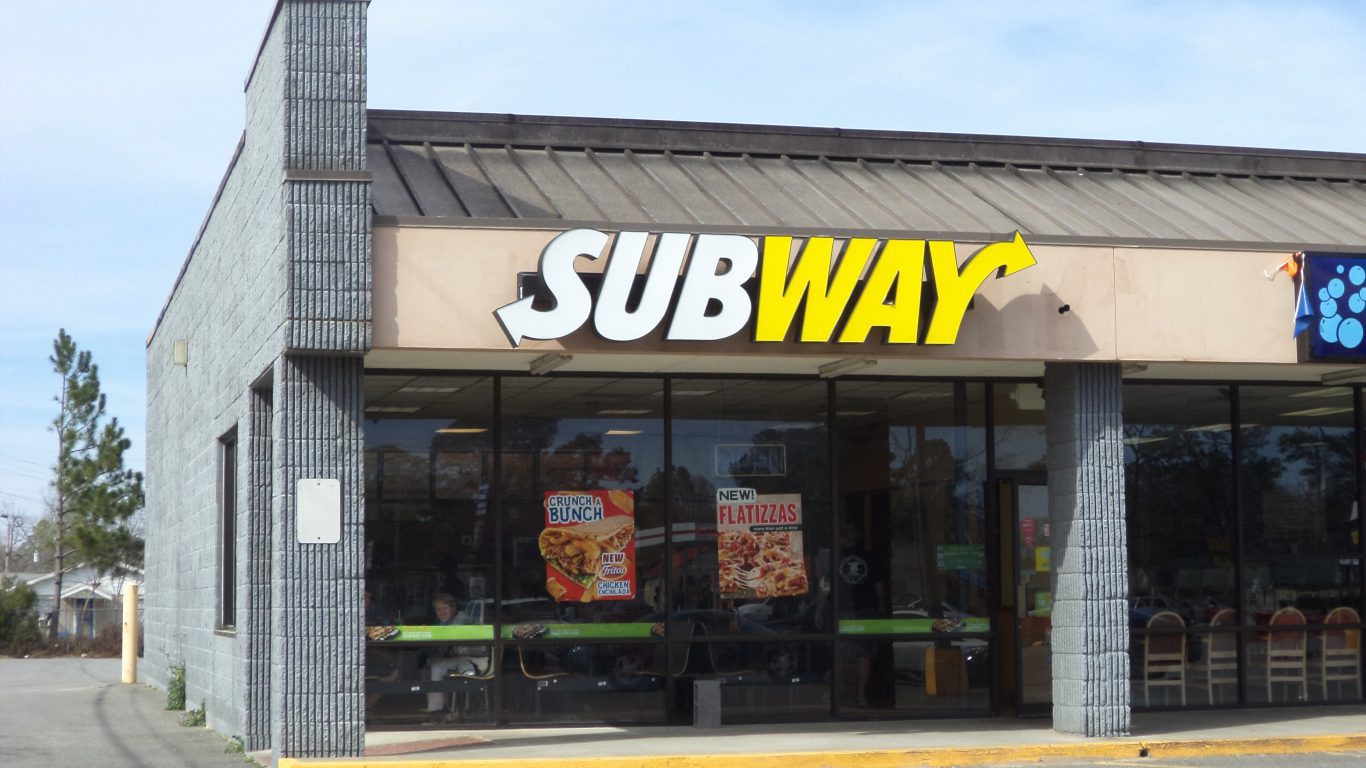
Subway
> Location: Nationwide
America’s largest fast-food chain has temporarily removed serving trays and dine-in baskets from its restaurants. In addition, customers are given a new cup for each beverage refill instead of it being served in the cup they’ve already used once.
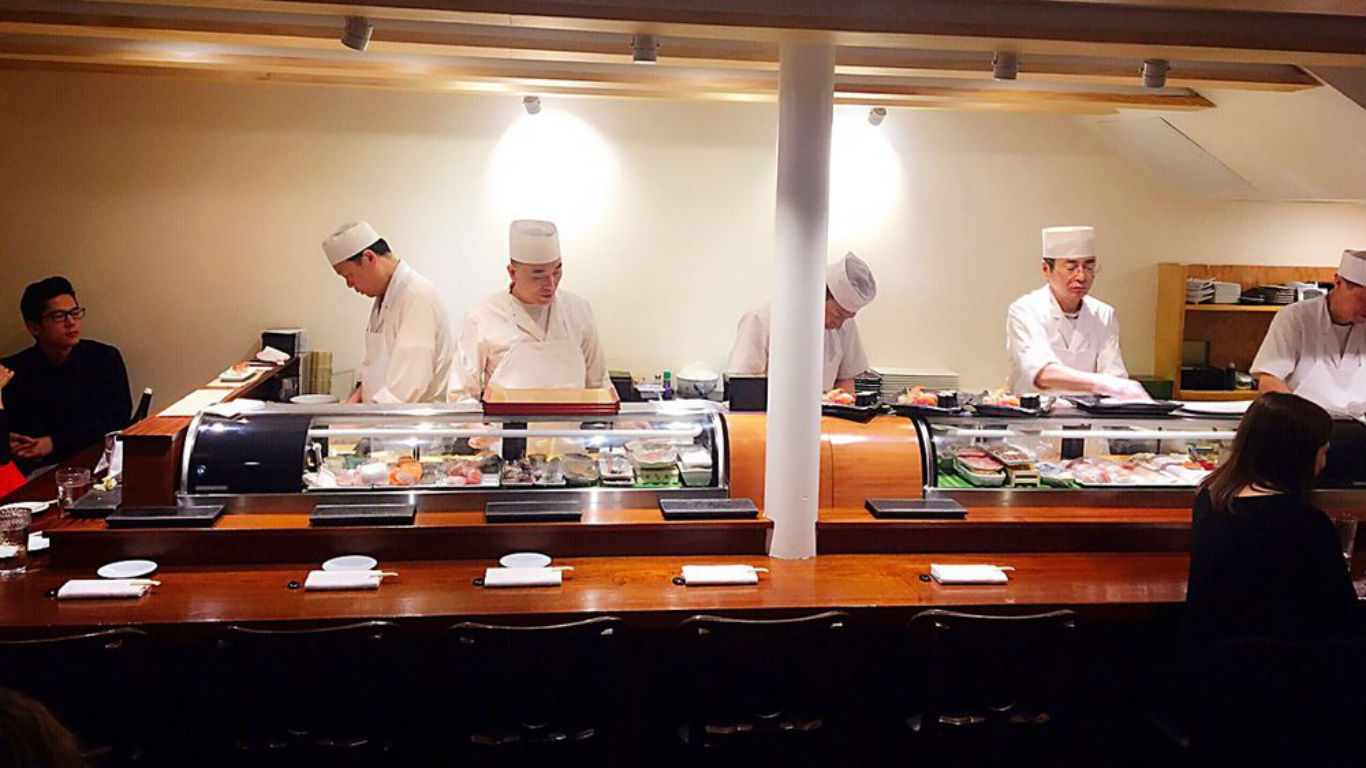
Sushi Katsuei
> Location: New York City and Brooklyn
Both locations of this popular sushi restaurant had announced that all diners, delivery people, and staff would have their temperatures checked via laser thermometer before entering the premises. This rule became moot for diners after New York City mayor Bill de Blasio’s decree on Sunday — since reinforced by a New York State mandate — that restaurants can now sell food only on a delivery or takeout basis.
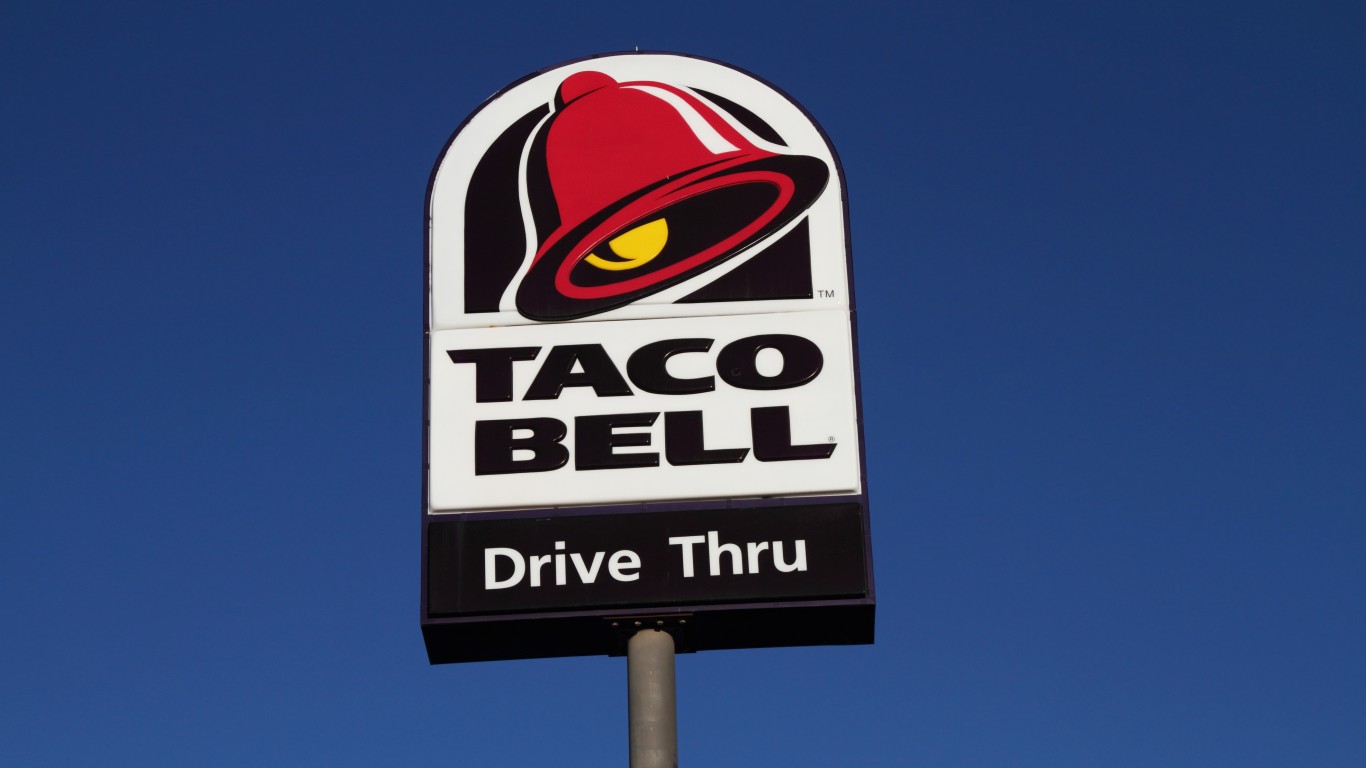
Taco Bell
> Location: Nationwide
This popular chain is considering closing its eat-in facilities. In so doing, Taco Bell CEO Mark King wrote in an email blast late Friday, “we would be limiting millions of guest interactions and further enabling social distancing.” He notes that the chain is also “equipping our restaurants to serve our guests via drive-thru and delivery only, where necessary.”
[in-text-ad-2]
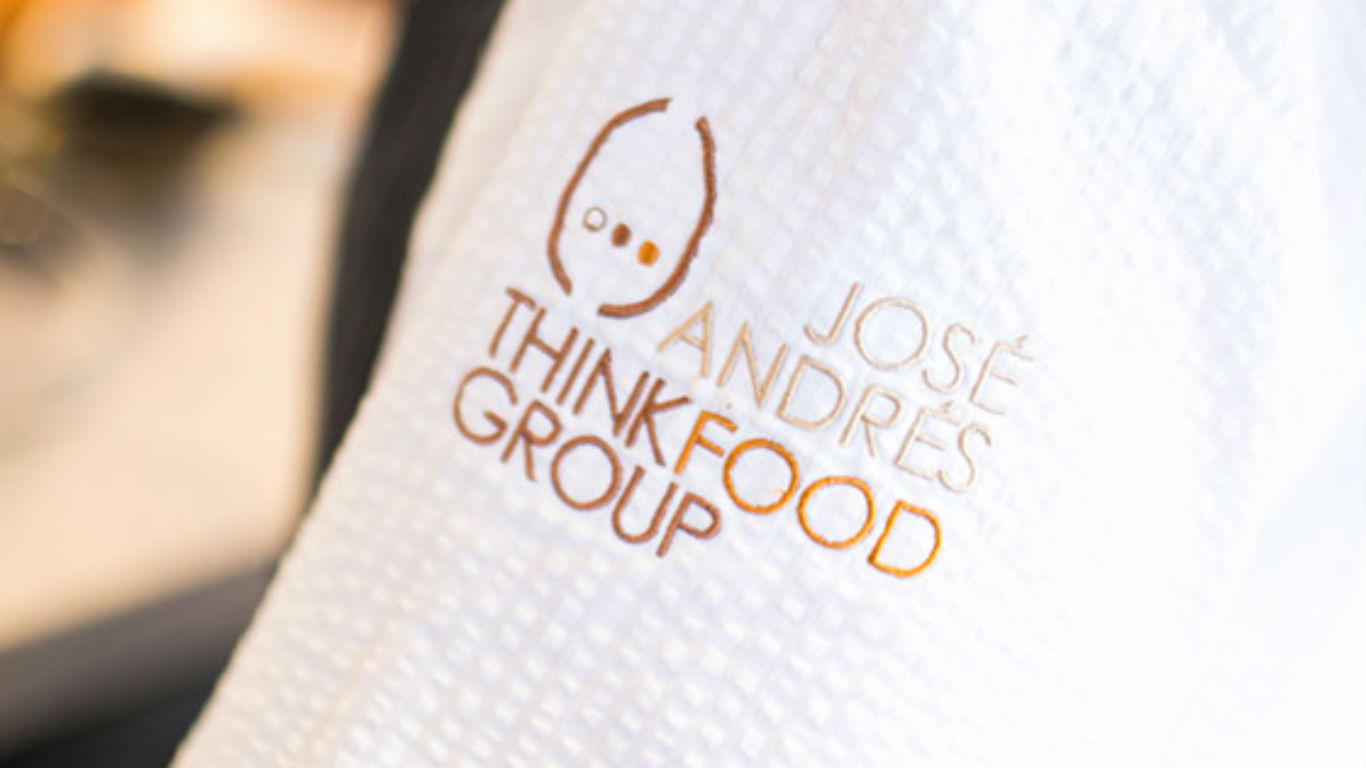
ThinkFoodGroup
> Location: Washington D.C.
High-profile chef-activist José Andrés’s restaurants in the nation’s capital, the headquarters of his empire, removed tables to increase “social distance” between diners, among other measures, but announced Sunday afternoon that he was closing all his D.C. area restaurants. Some, he said, will be transformed into community kitchens offering lunches to go for those who need a meal. ThinkFoodGroup restaurants in Los Angeles, Miami, Las Vegas, and elsewhere are instituting a range of measures to help stop the spread of the virus, too.
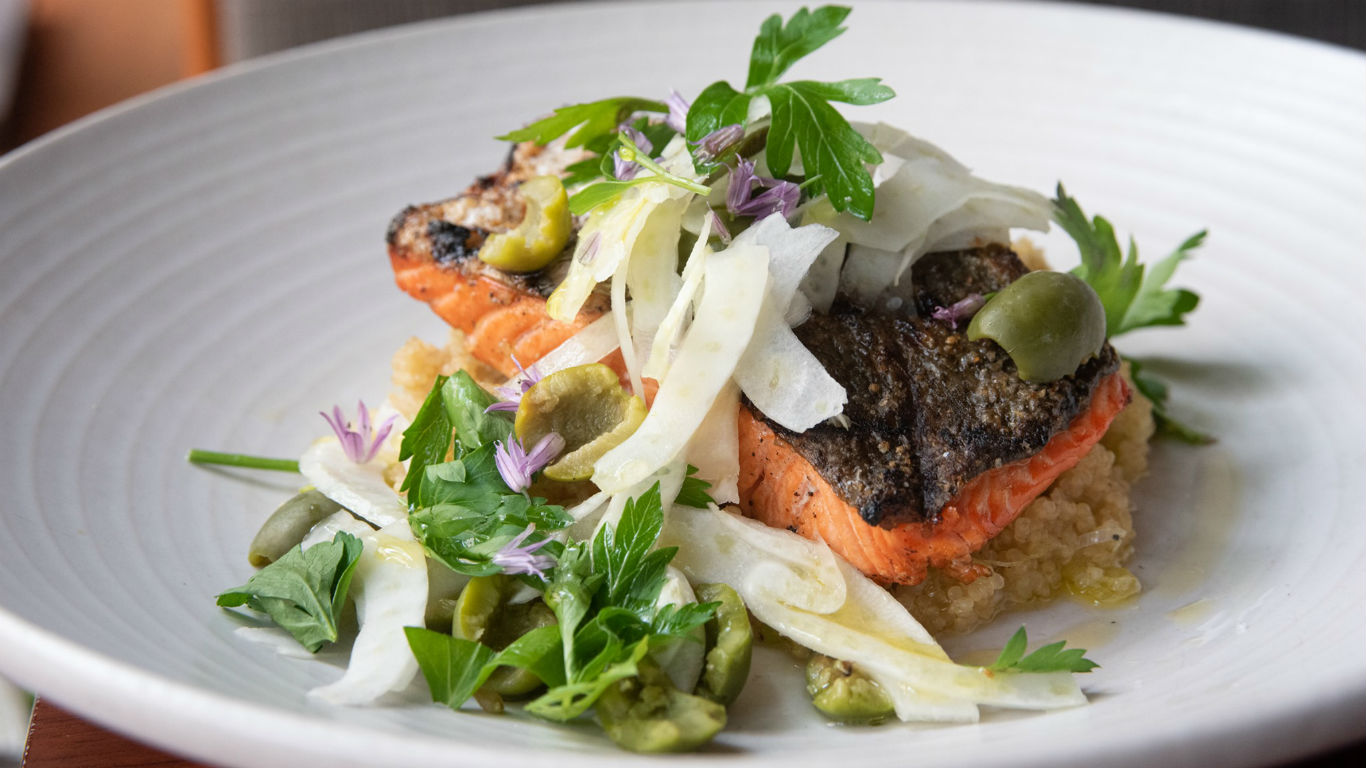
Tom Douglas Seattle Kitchen
> Location: Seattle
Prominent local chef-restaurateur Tom Douglas, who operates 13 restaurants and associated businesses in the city under the Seattle Kitchen umbrella, closed a dozen of them on Sunday before the state restricted all Washington restaurants to takeout and delivery service only. Douglas directed laid-off employees to file for unemployment and said that while he couldn’t afford to pay them severance, he would rehire them when his establishments reopened.
[in-text-ad]
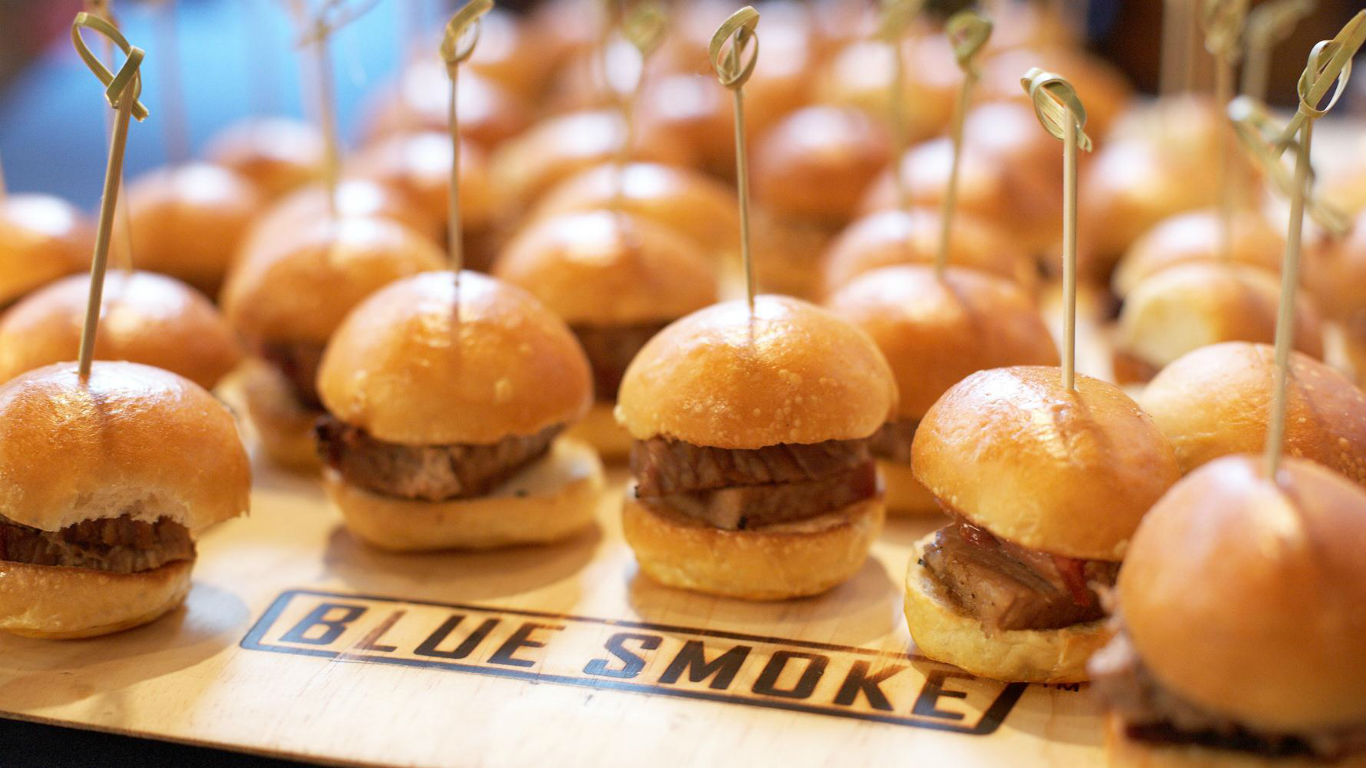
Union Square Hospitality Group
> Location: New York City, Brooklyn, and Washington D.C.
Danny Meyer’s restaurant organization issued a statement last week reading, “We have made the difficult decision to temporarily close for service to prioritize the health and safety of our team, our guests, and our community.” All 21 USHG restaurants and bars were affected, including such acclaimed restaurants as Union Square Café, Gramercy Tavern, and Blue Smoke. Though the newly announced state ban on in-house service permits takeout and delivery, the USHG restaurants are not currently offering either.
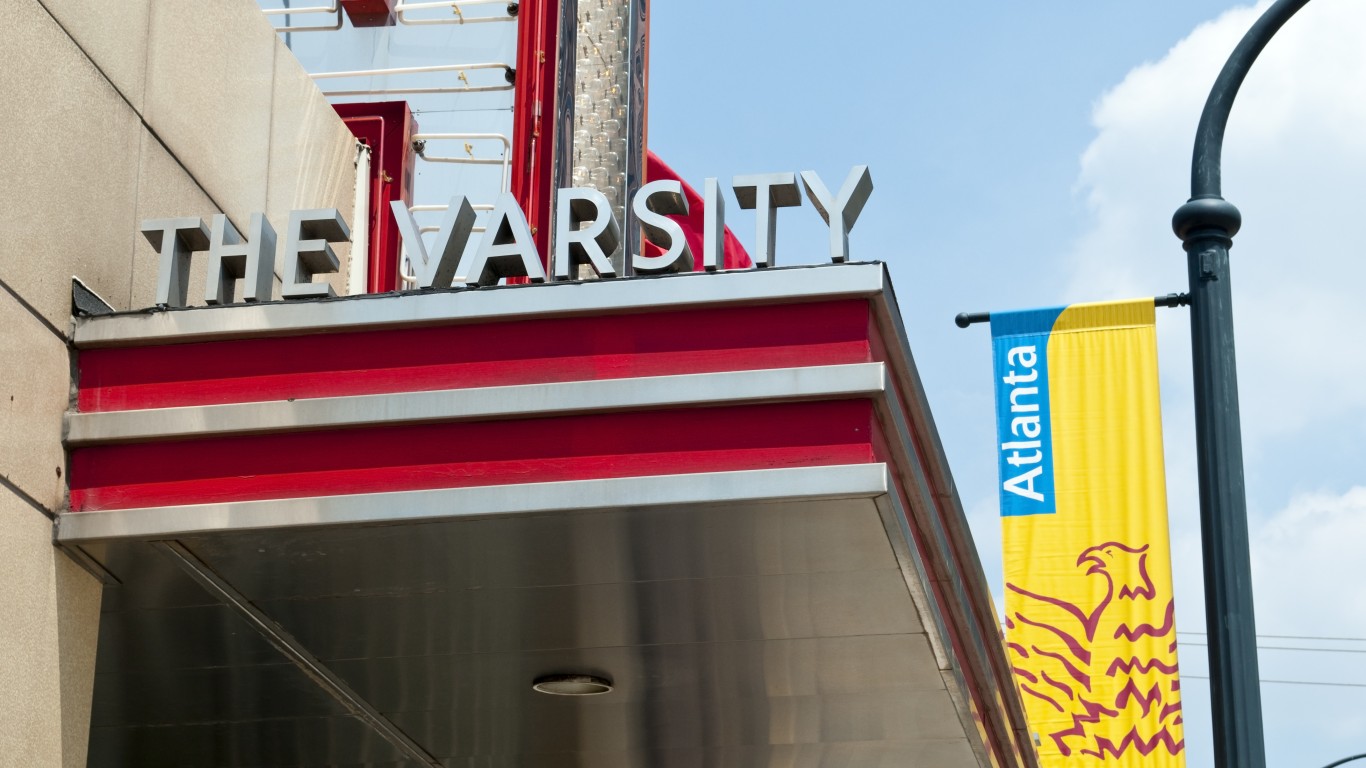
The Varsity
> Location: Georgia
This Atlanta-based fast-food chain has retrained its staff on sanitation measures, added public sanitizer stations to all dining rooms, and has assigned one employee at each unit to do nothing but keep the restaurants as clean as possible. “That’s all they do,” company president Gordon Muir told the Atlanta Journal-Constitution. “Start at the front door and continue around the whole building and wiping doors, tables, napkin holders on the table. That’s all this person does all day long.”
Retirement planning doesn’t have to feel overwhelming. The key is finding professional guidance—and we’ve made it easier than ever for you to connect with the right financial advisor for your unique needs.
Here’s how it works:
1️ Answer a Few Simple Questions
Tell us a bit about your goals and preferences—it only takes a few minutes!
2️ Get Your Top Advisor Matches
This tool matches you with qualified advisors who specialize in helping people like you achieve financial success.
3️ Choose Your Best Fit
Review their profiles, schedule an introductory meeting, and select the advisor who feels right for you.
Why wait? Start building the retirement you’ve always dreamed of. Click here to get started today!
Thank you for reading! Have some feedback for us?
Contact the 24/7 Wall St. editorial team.